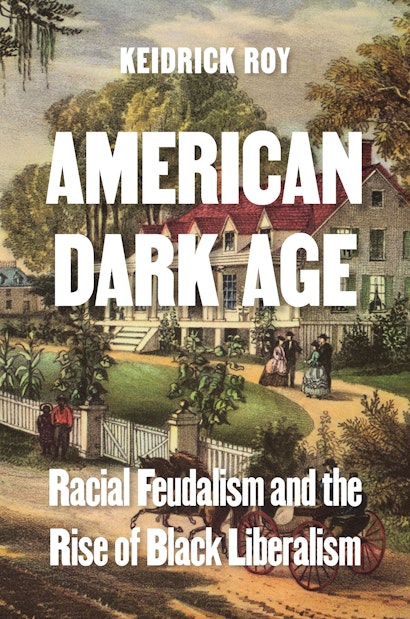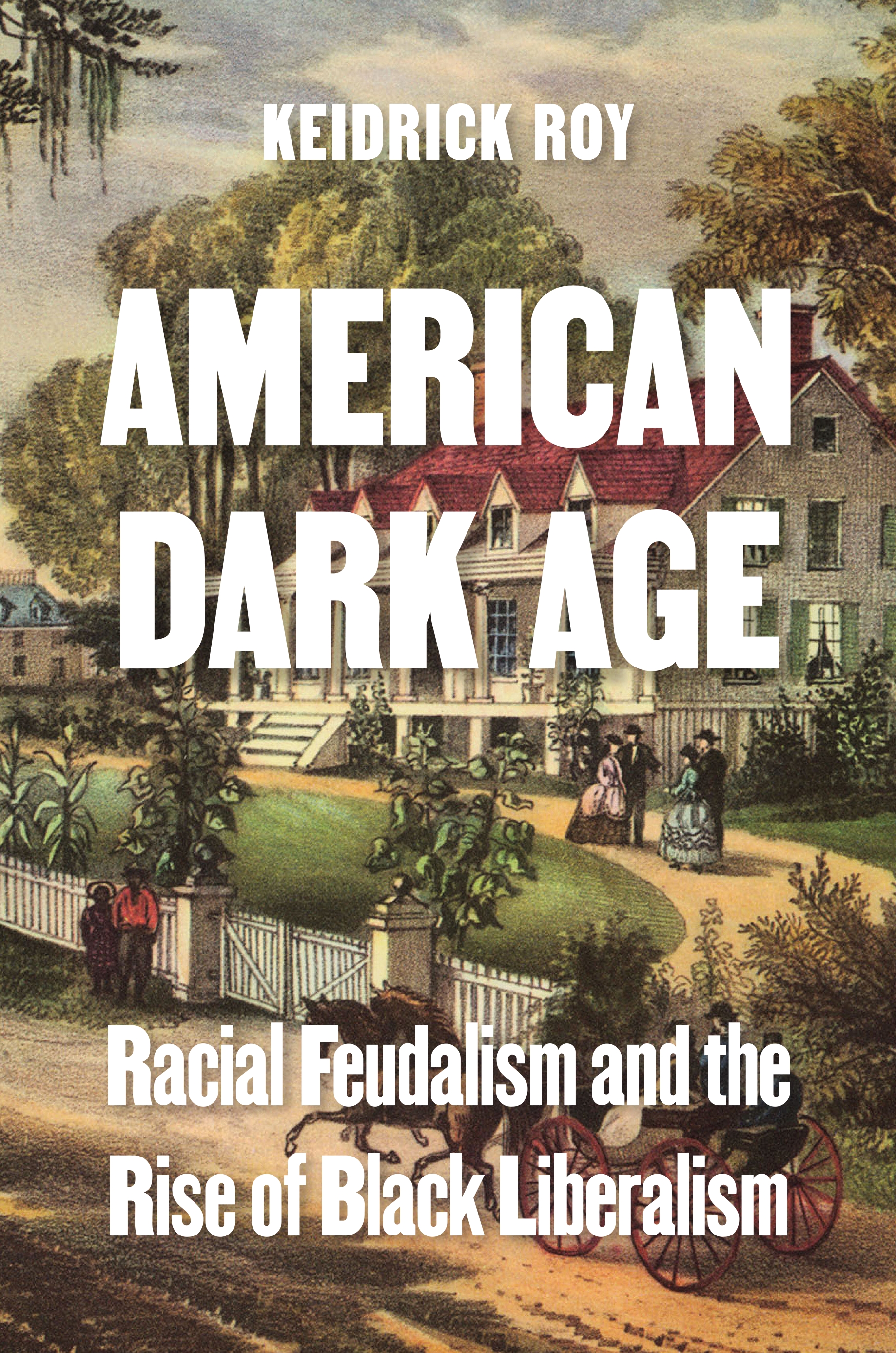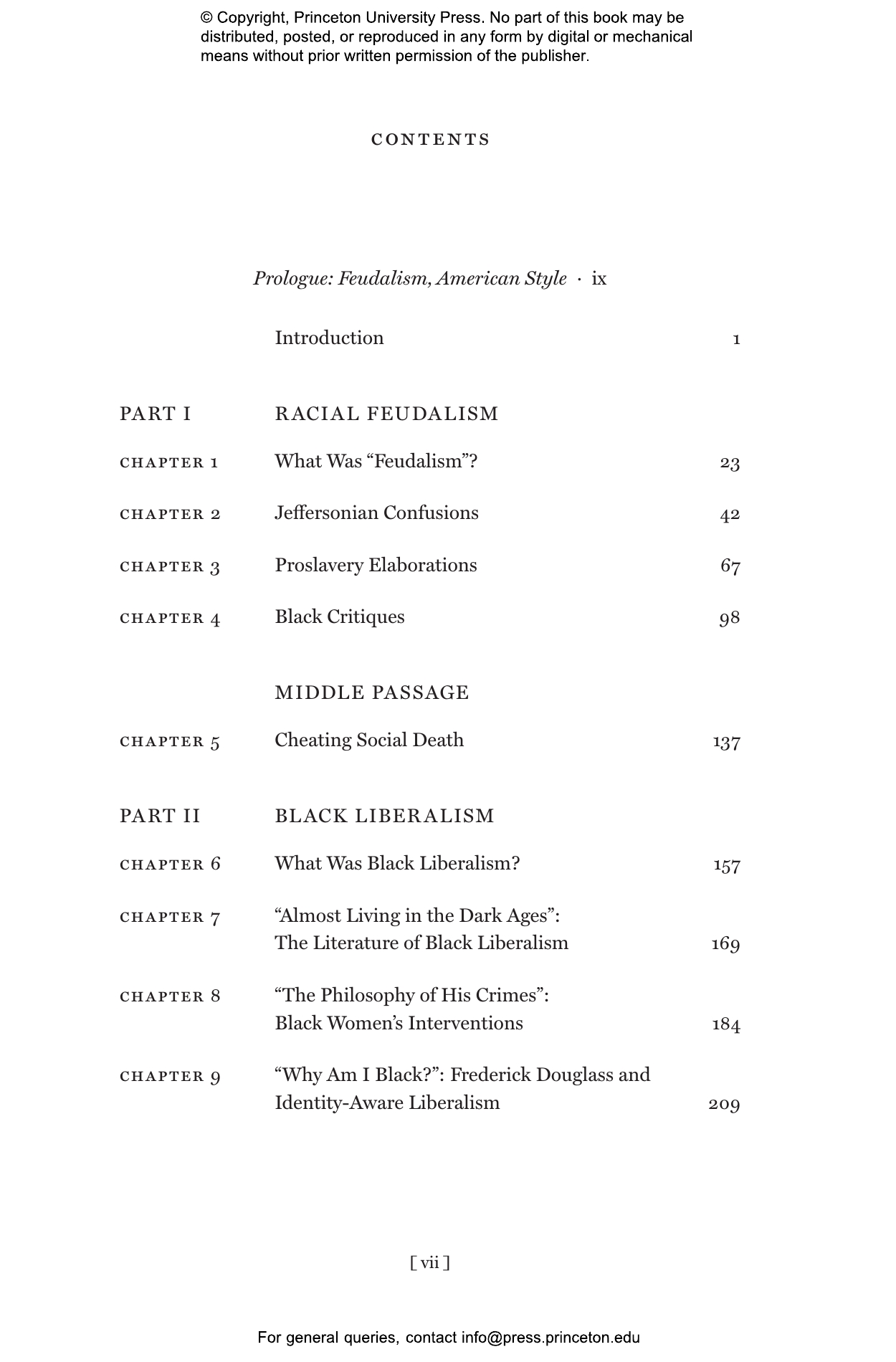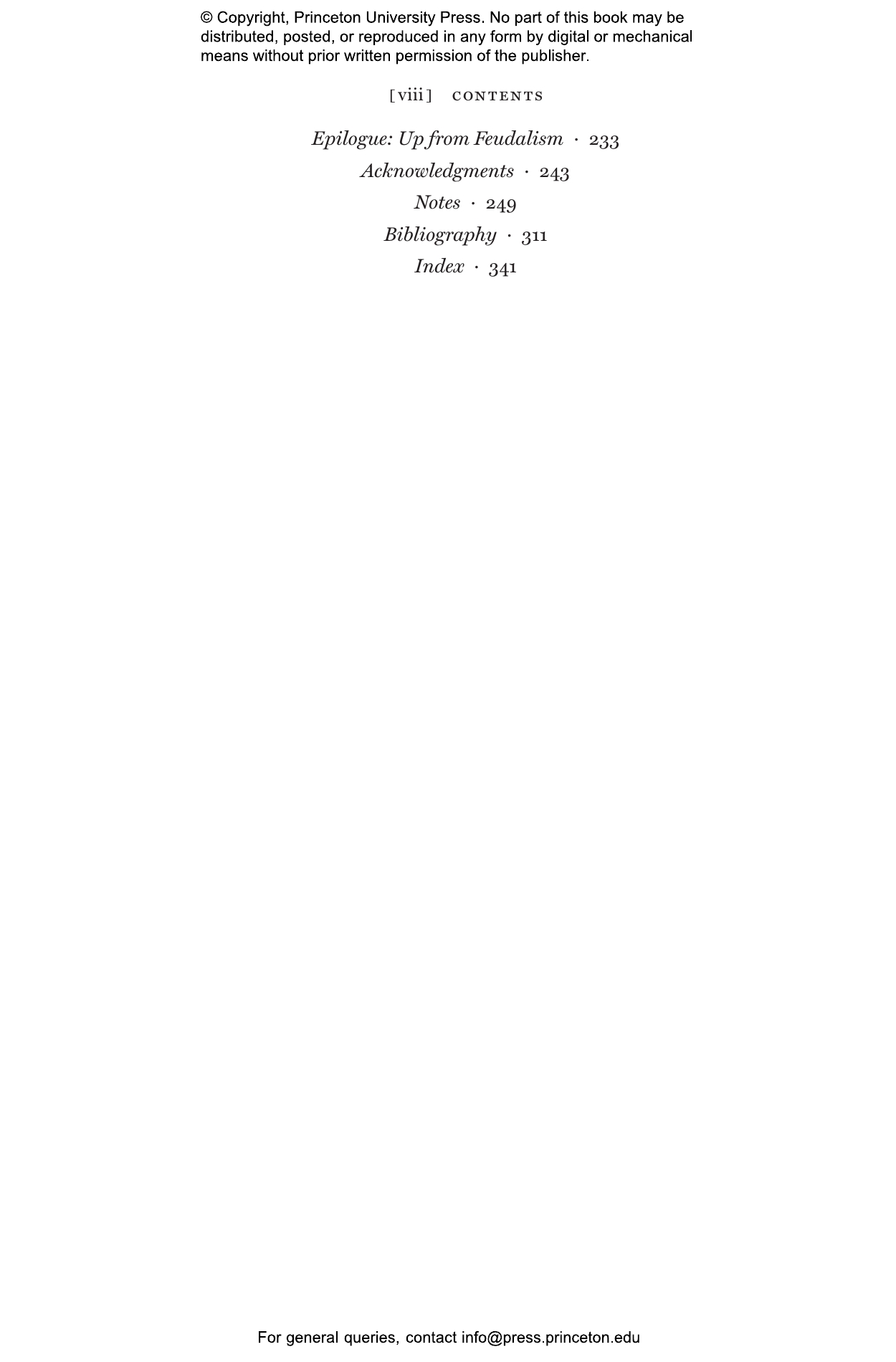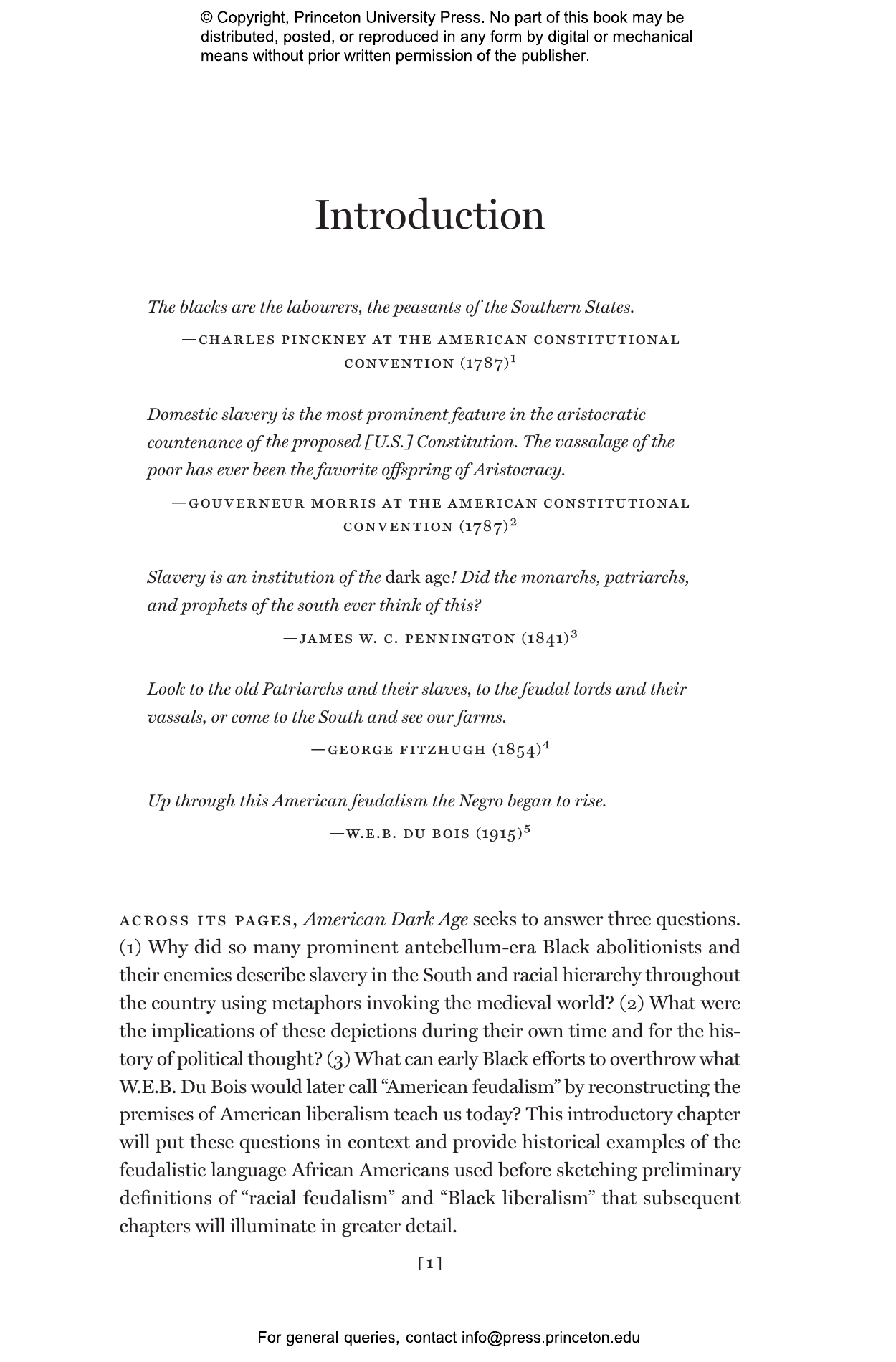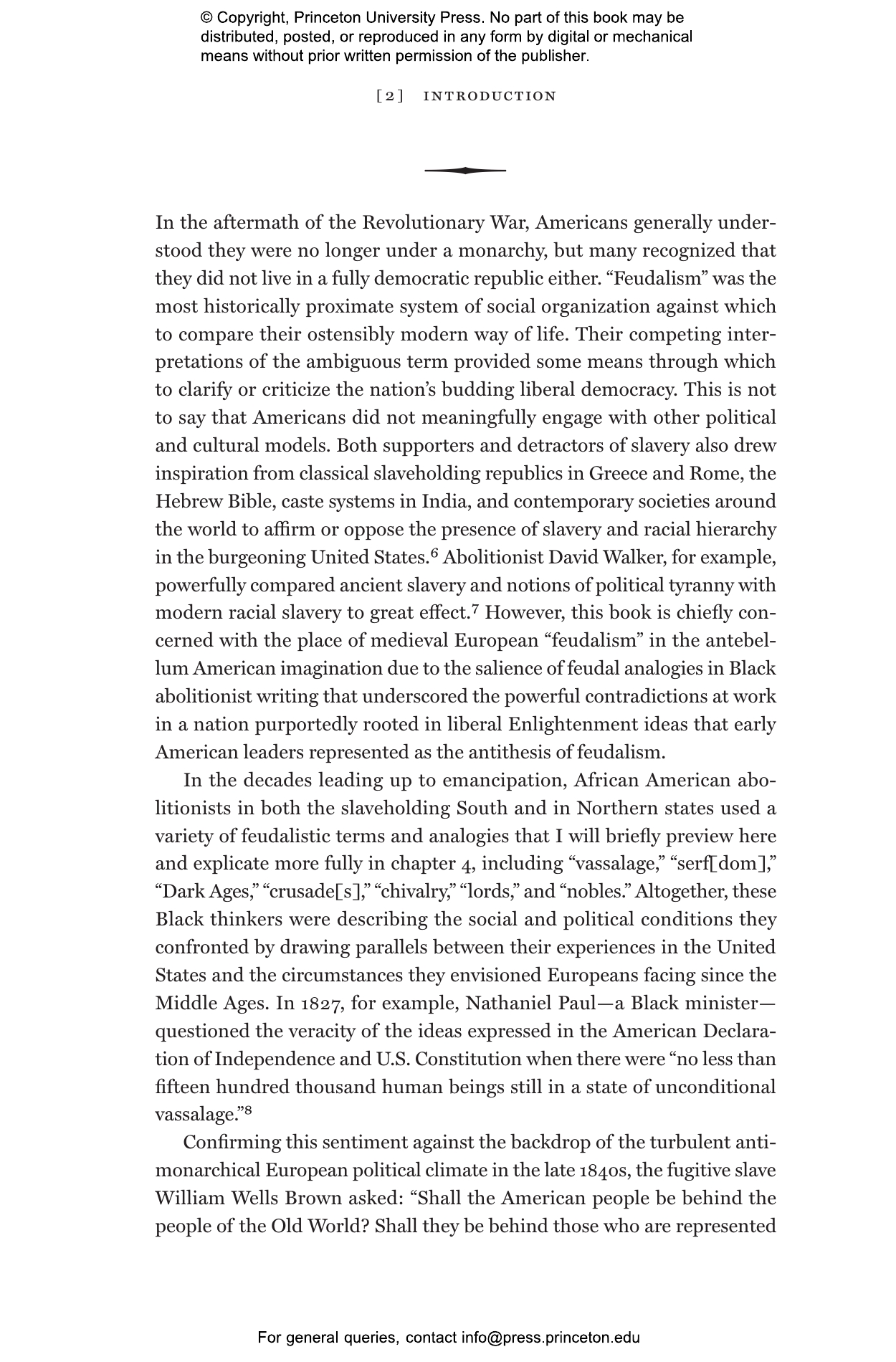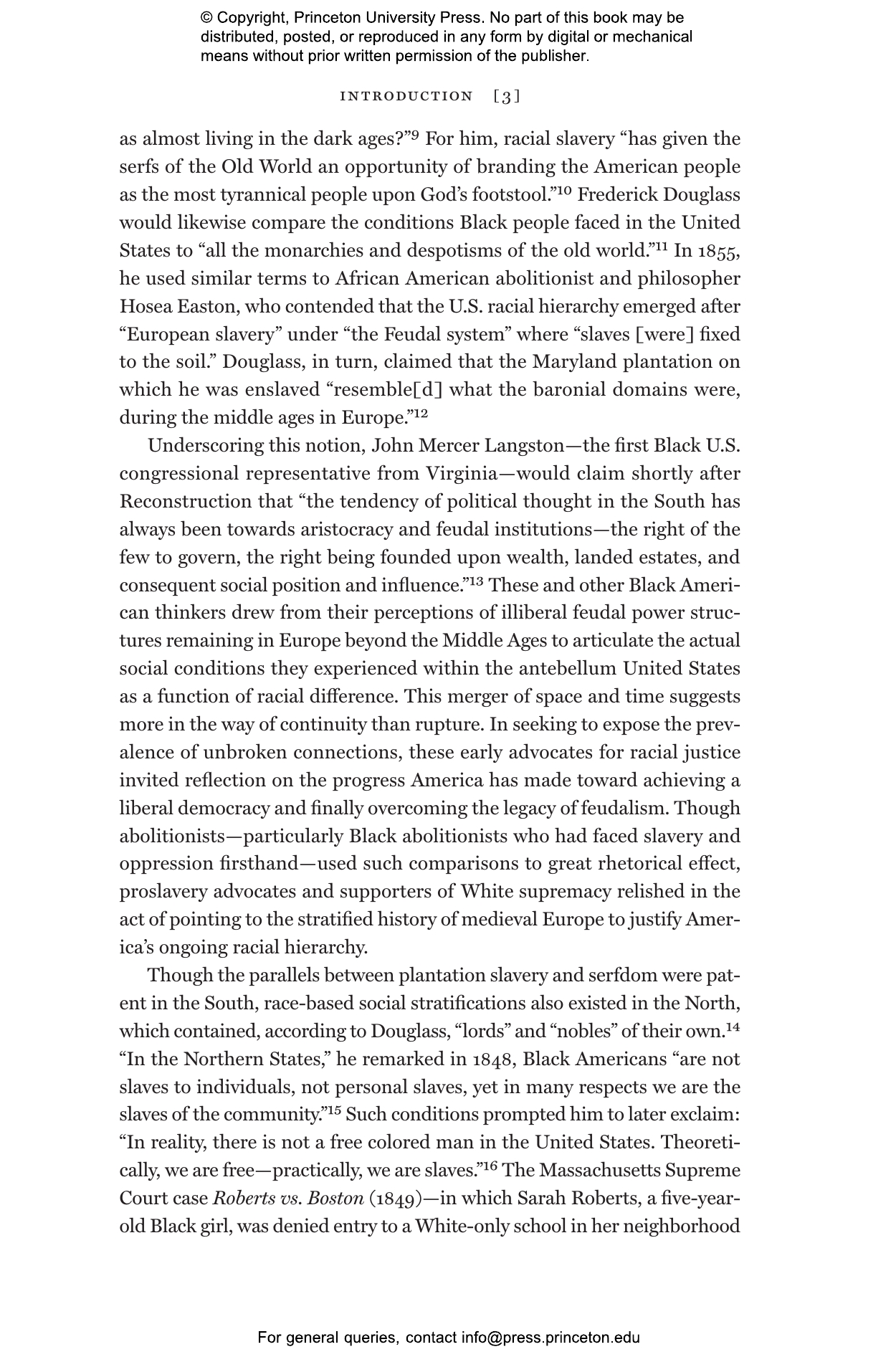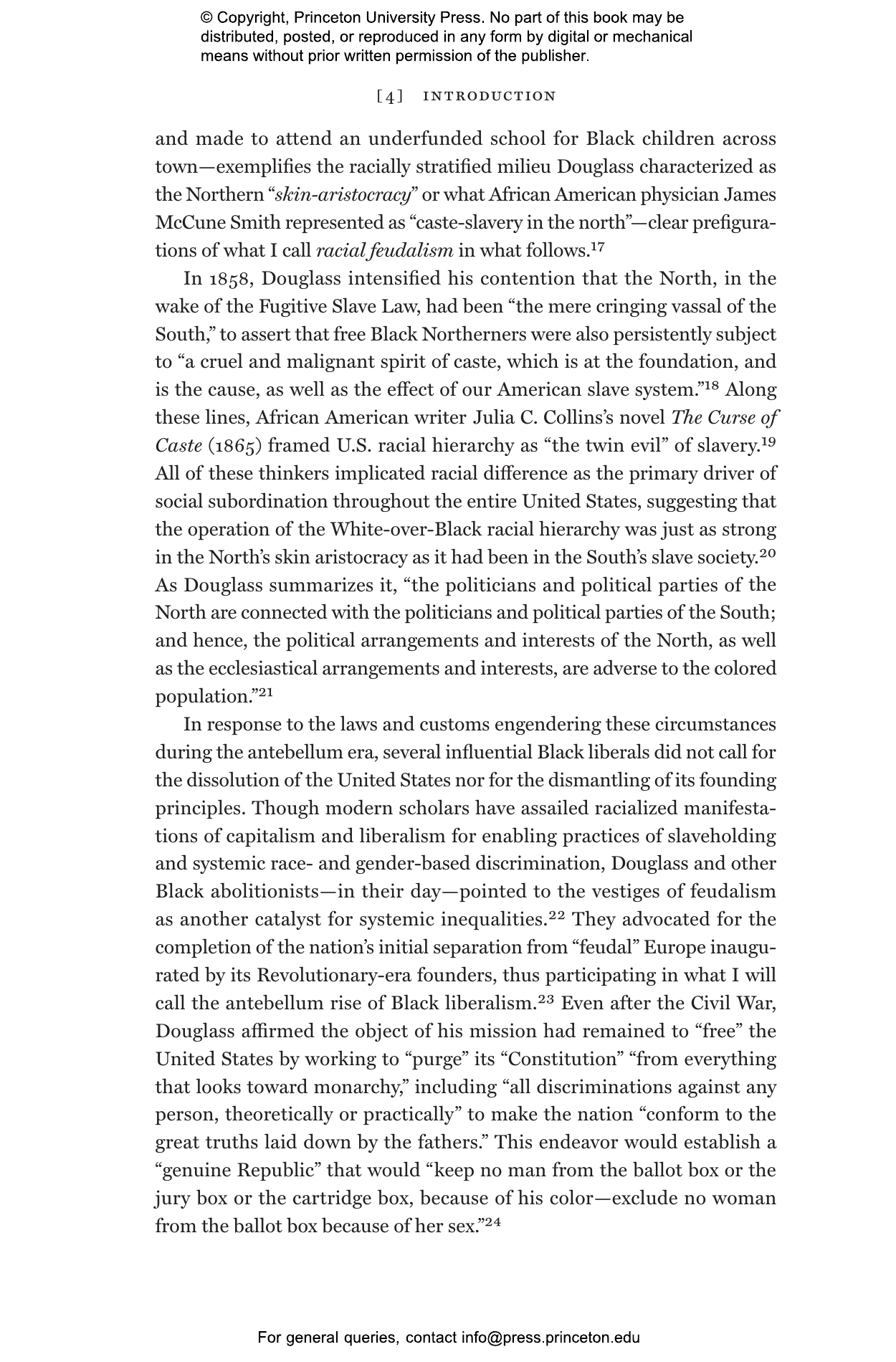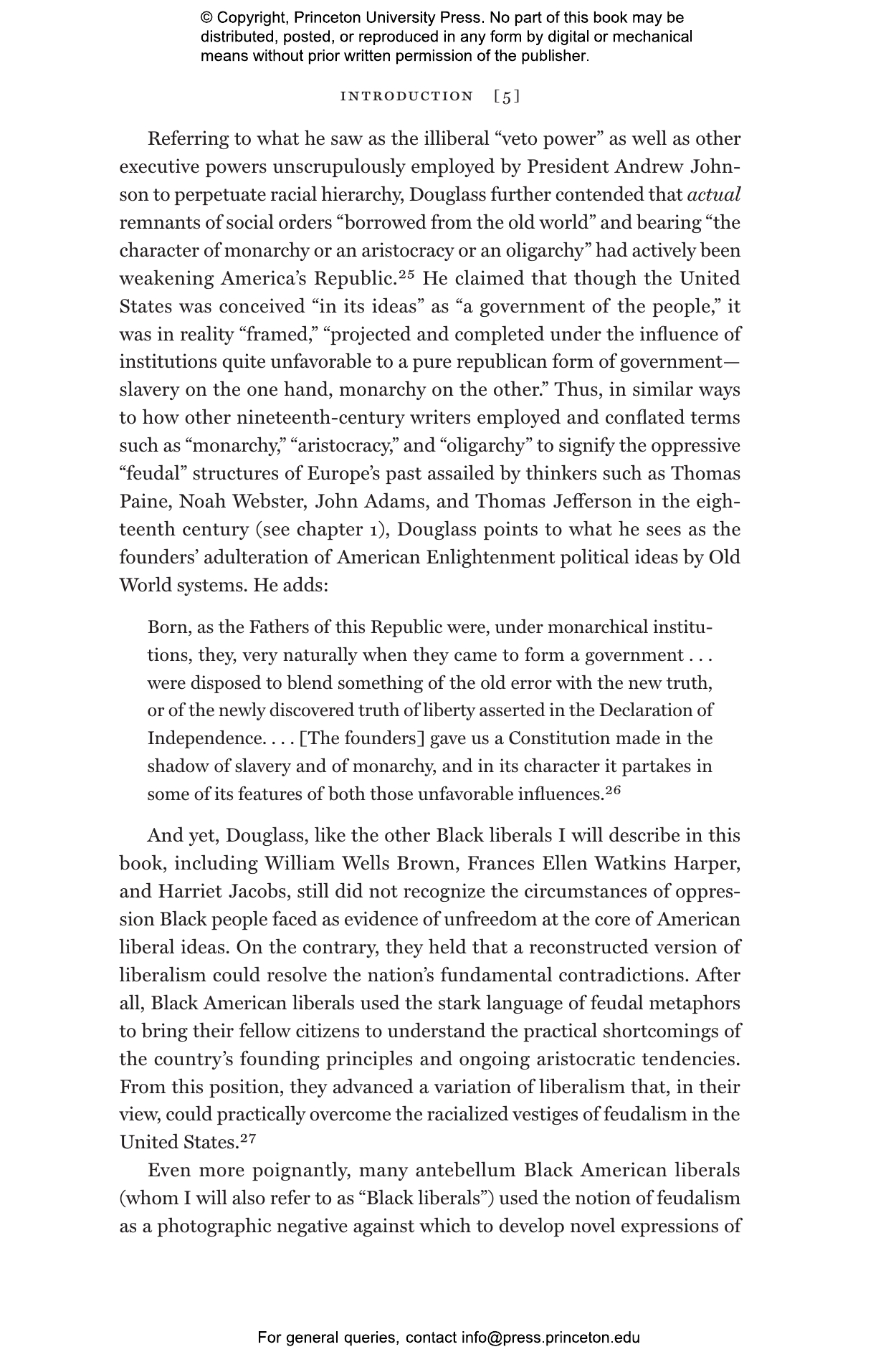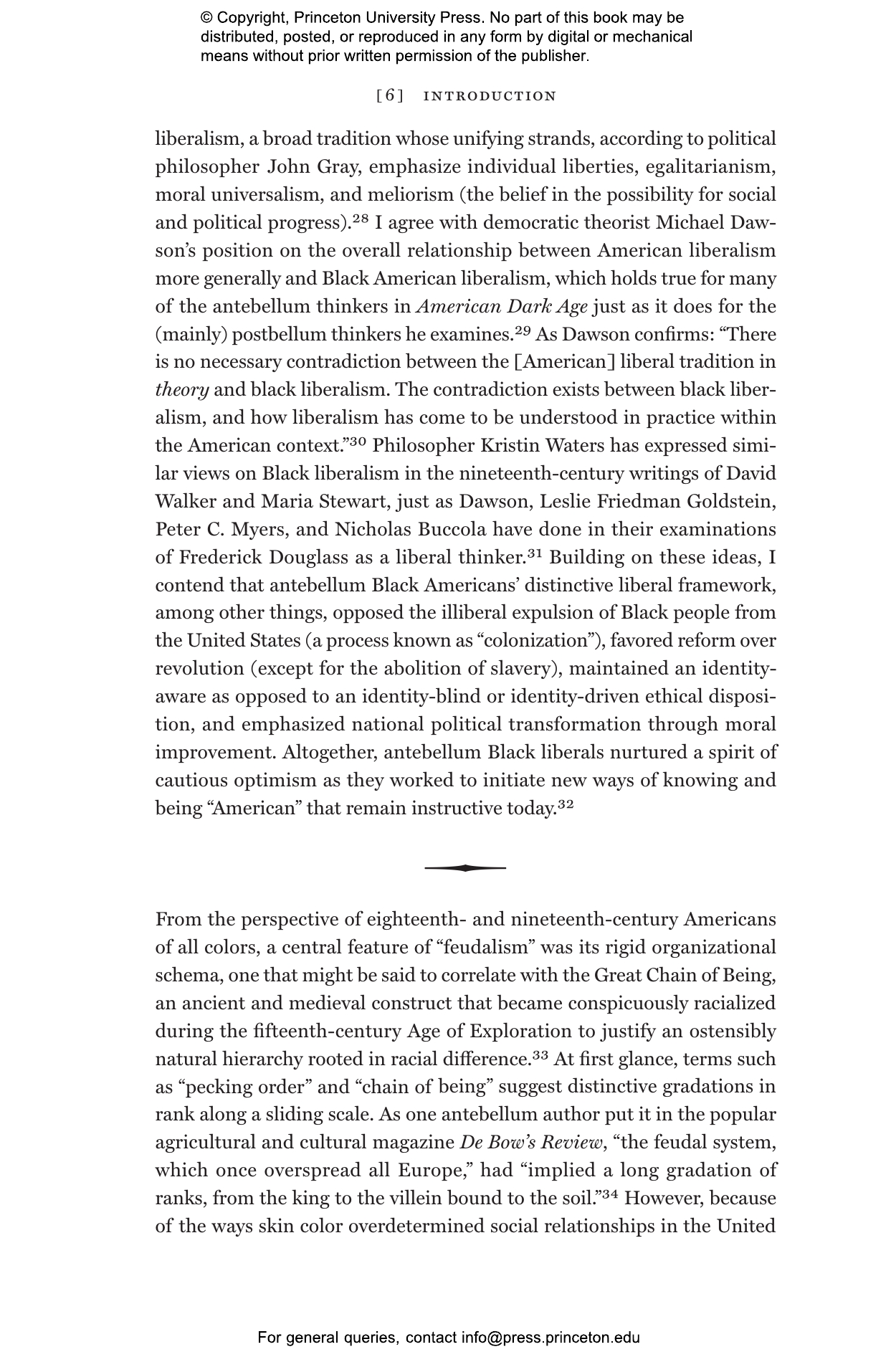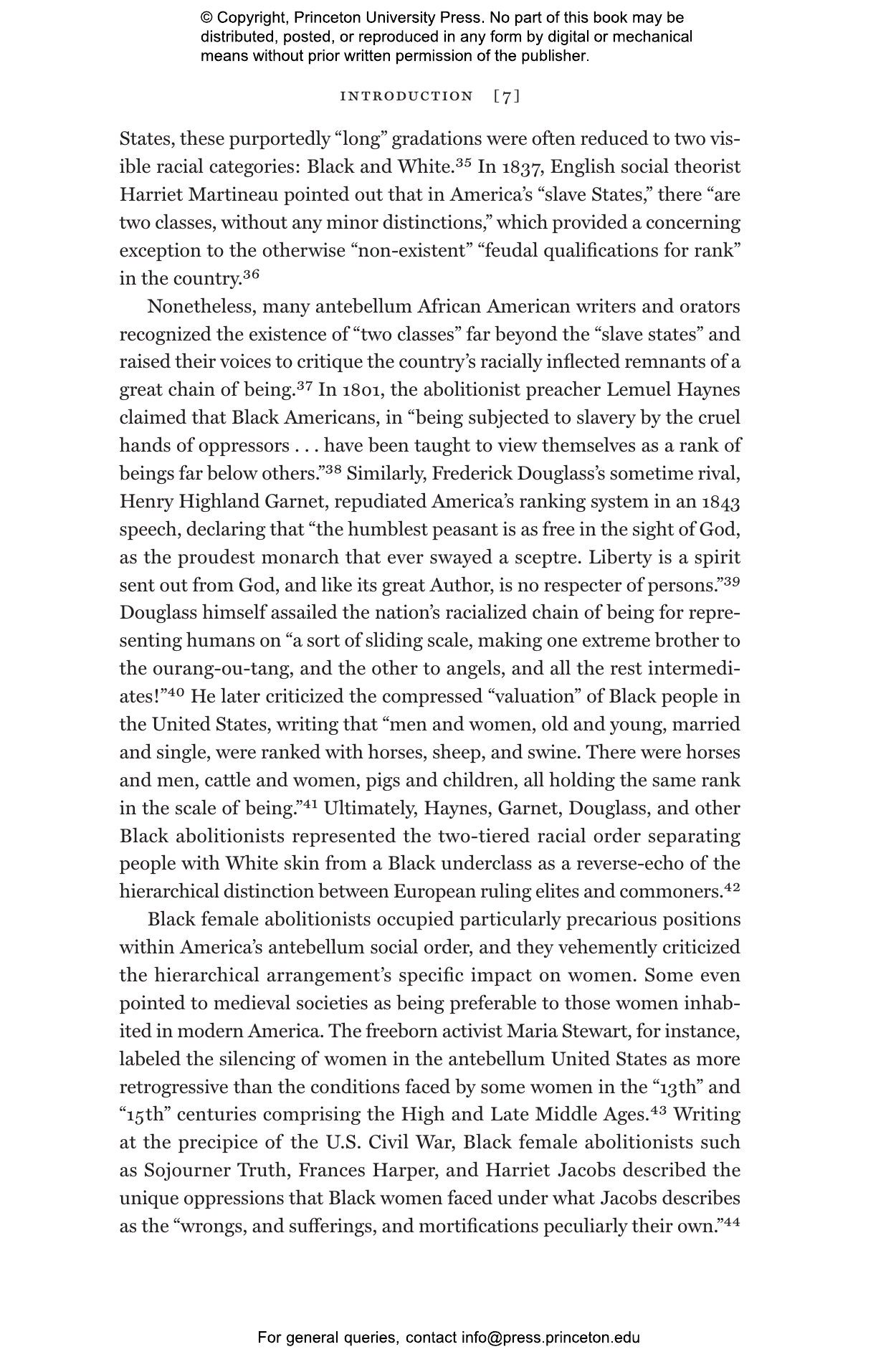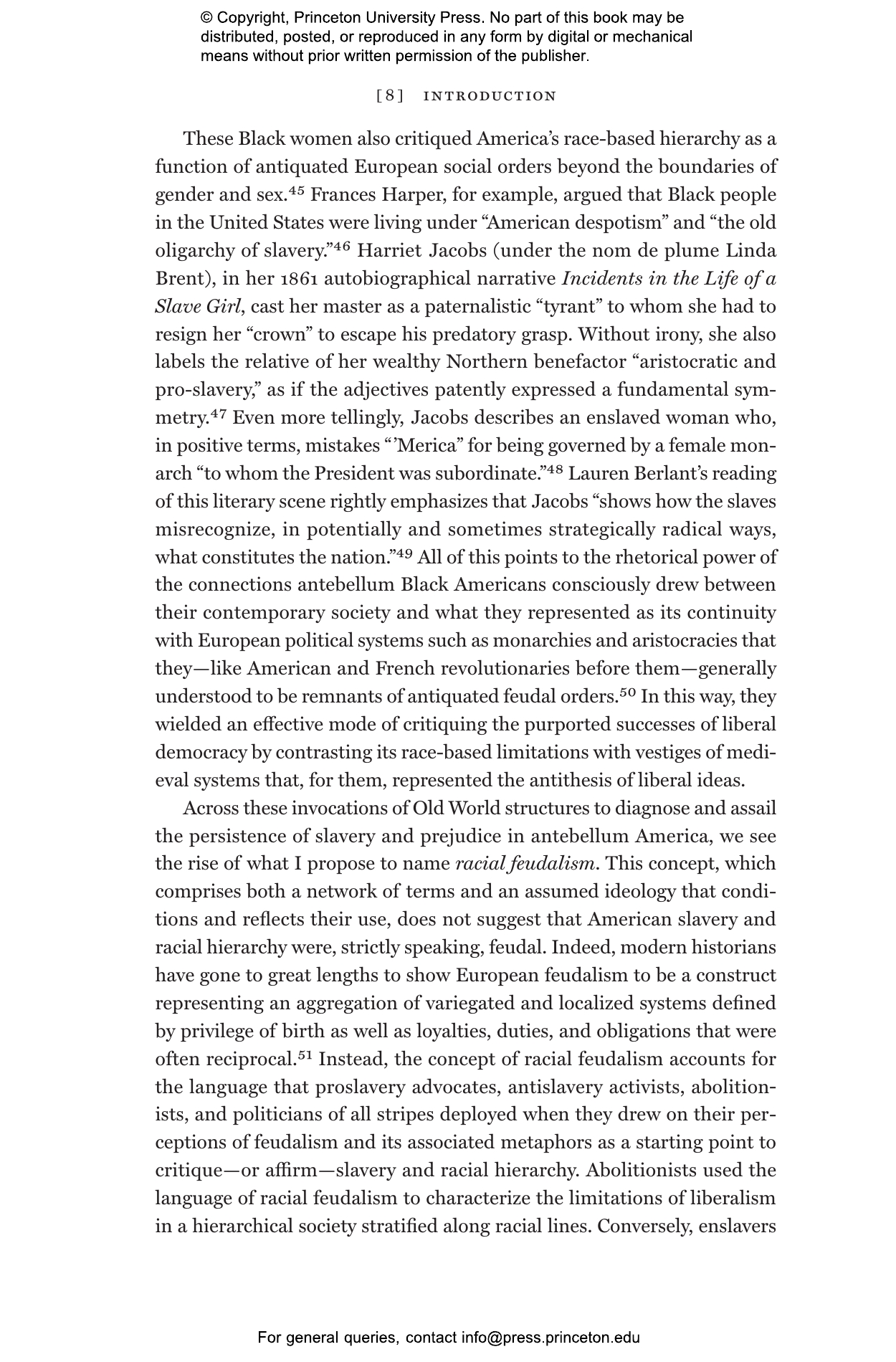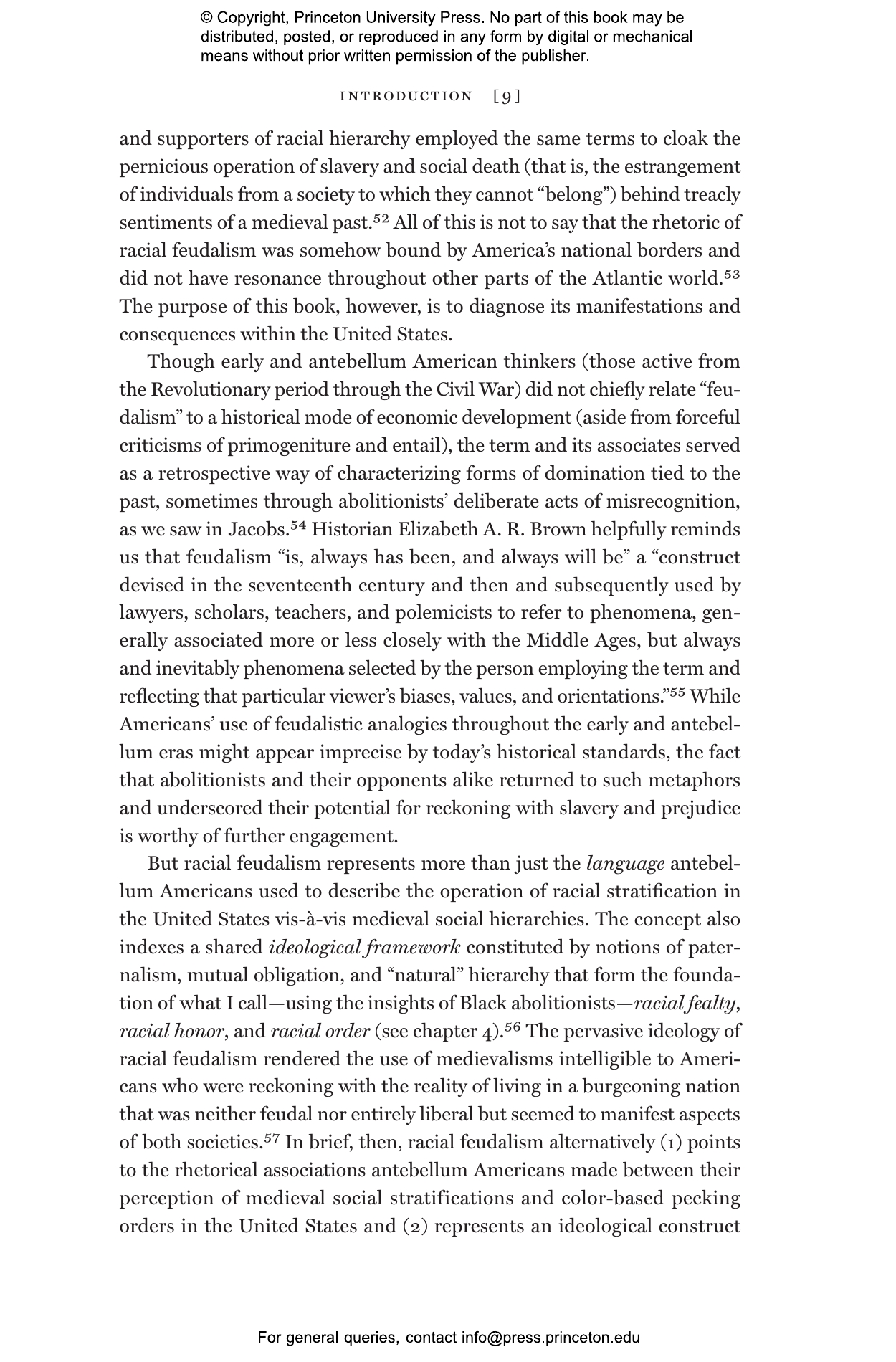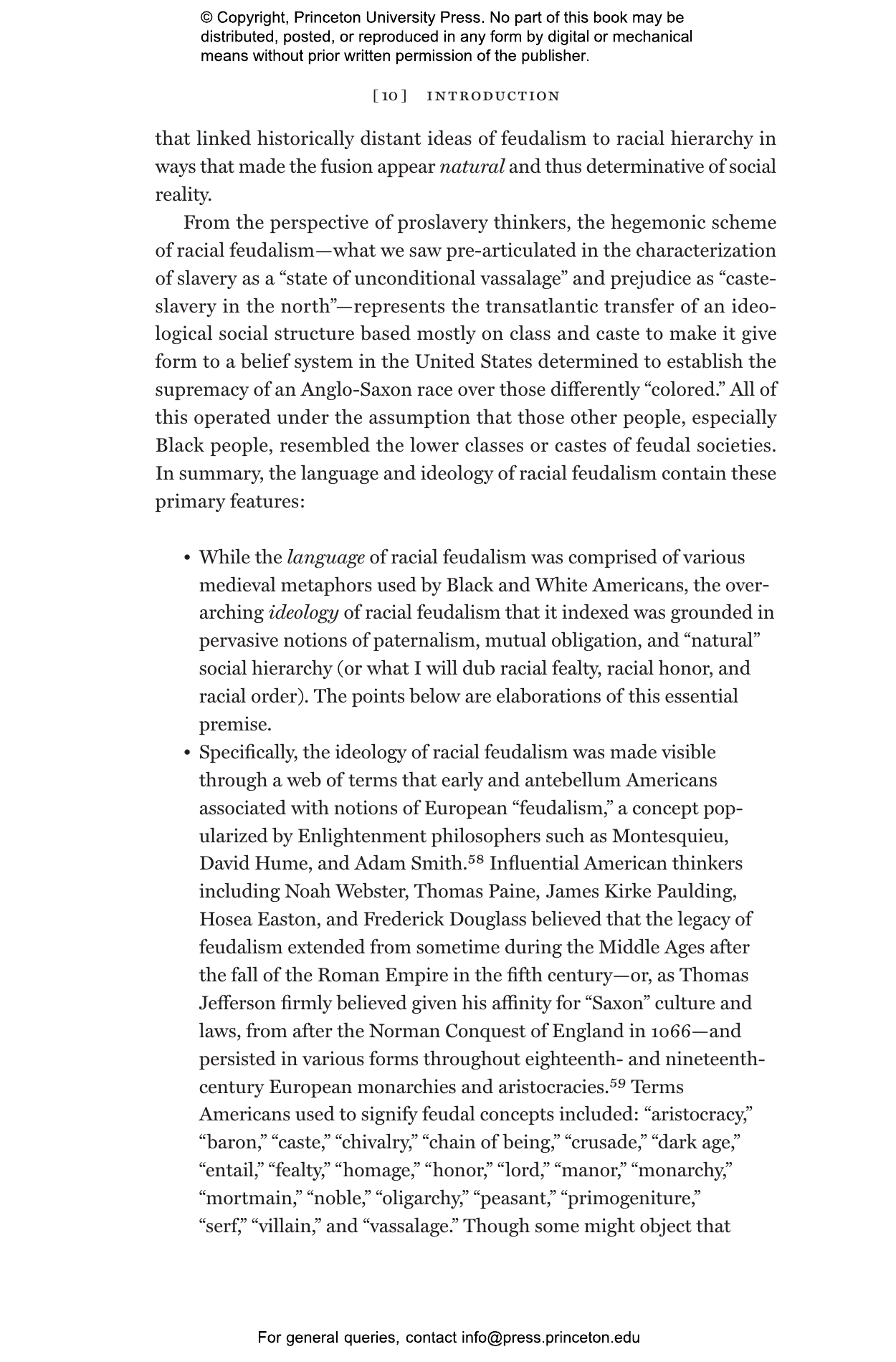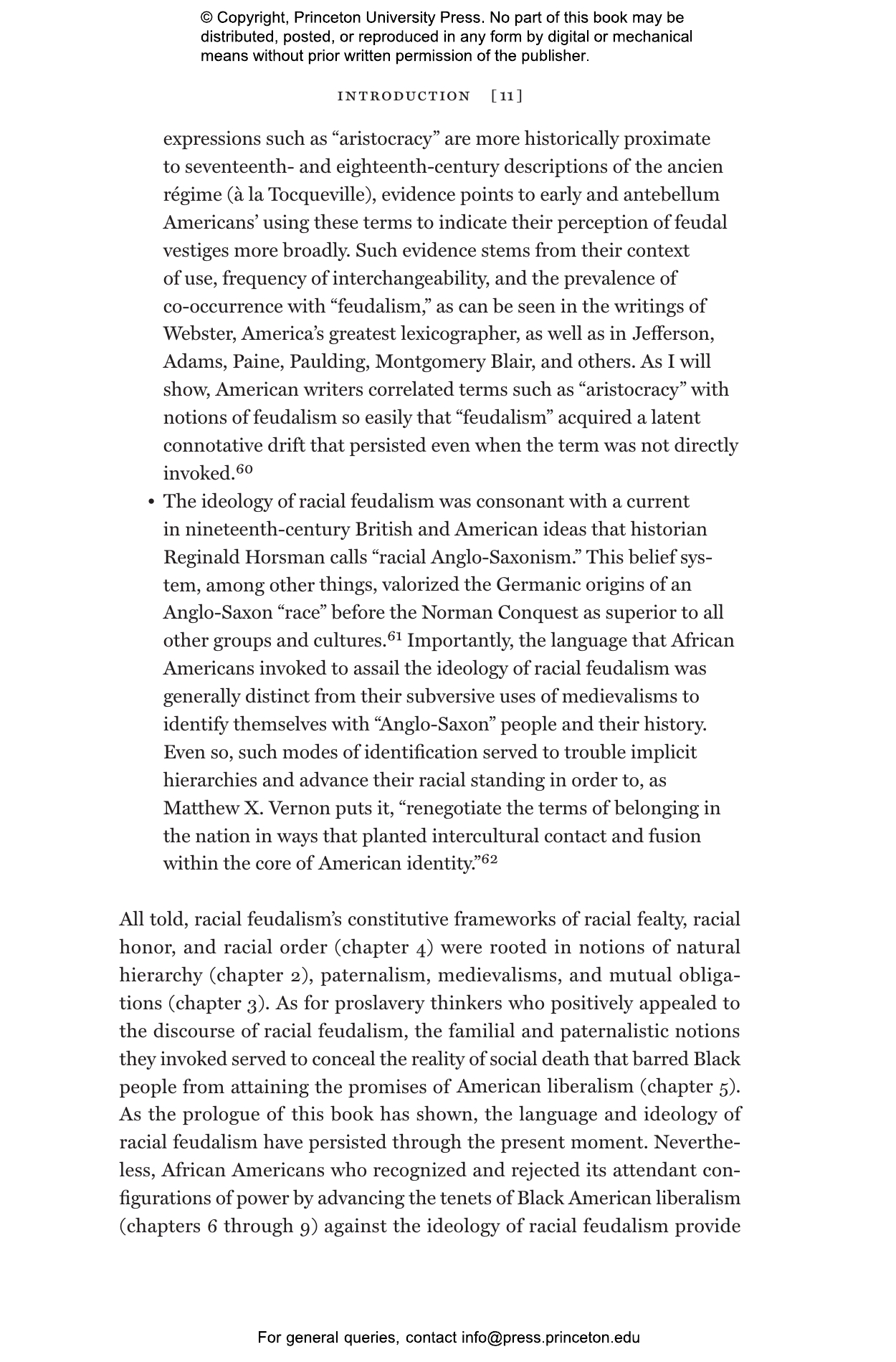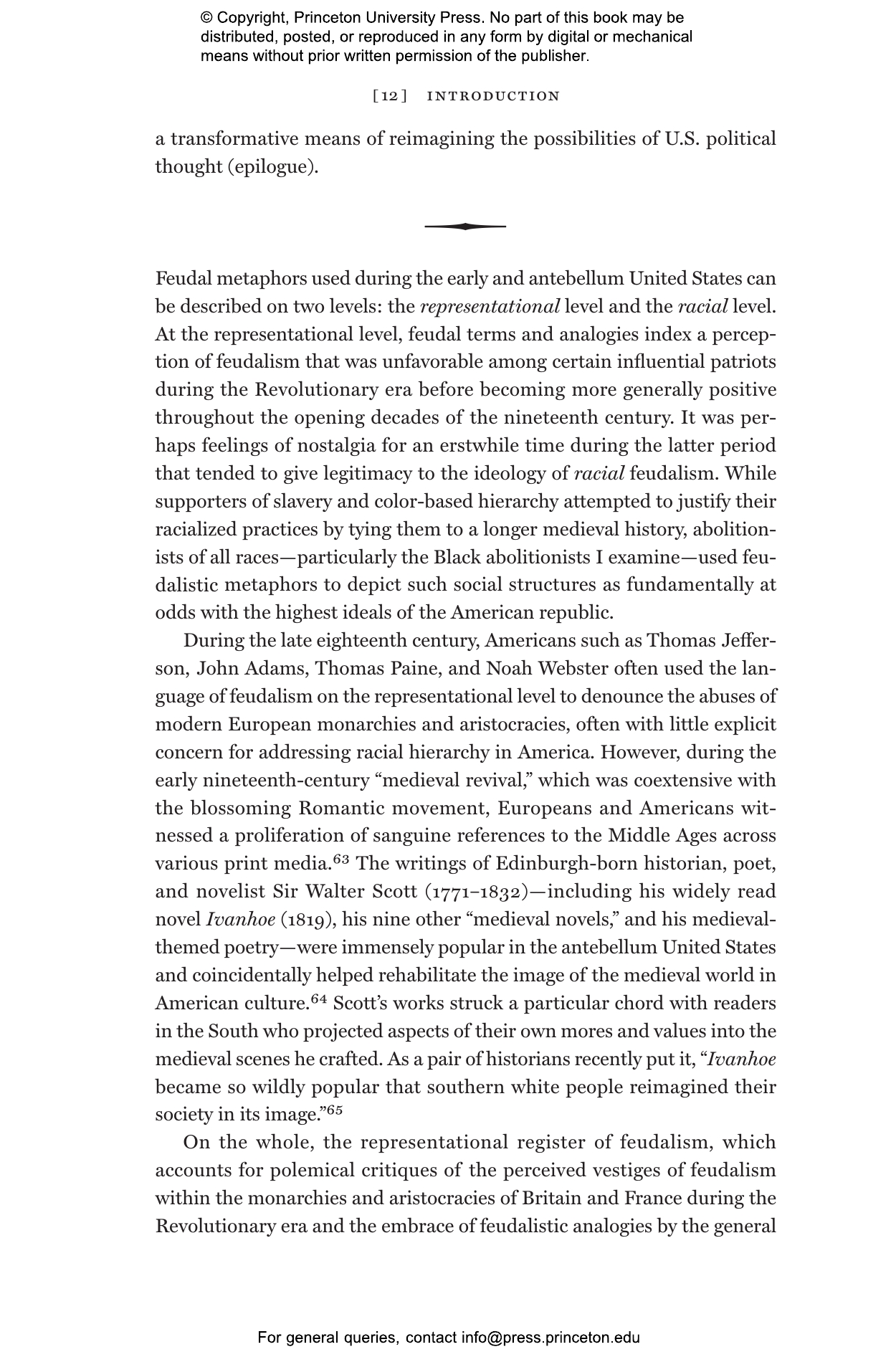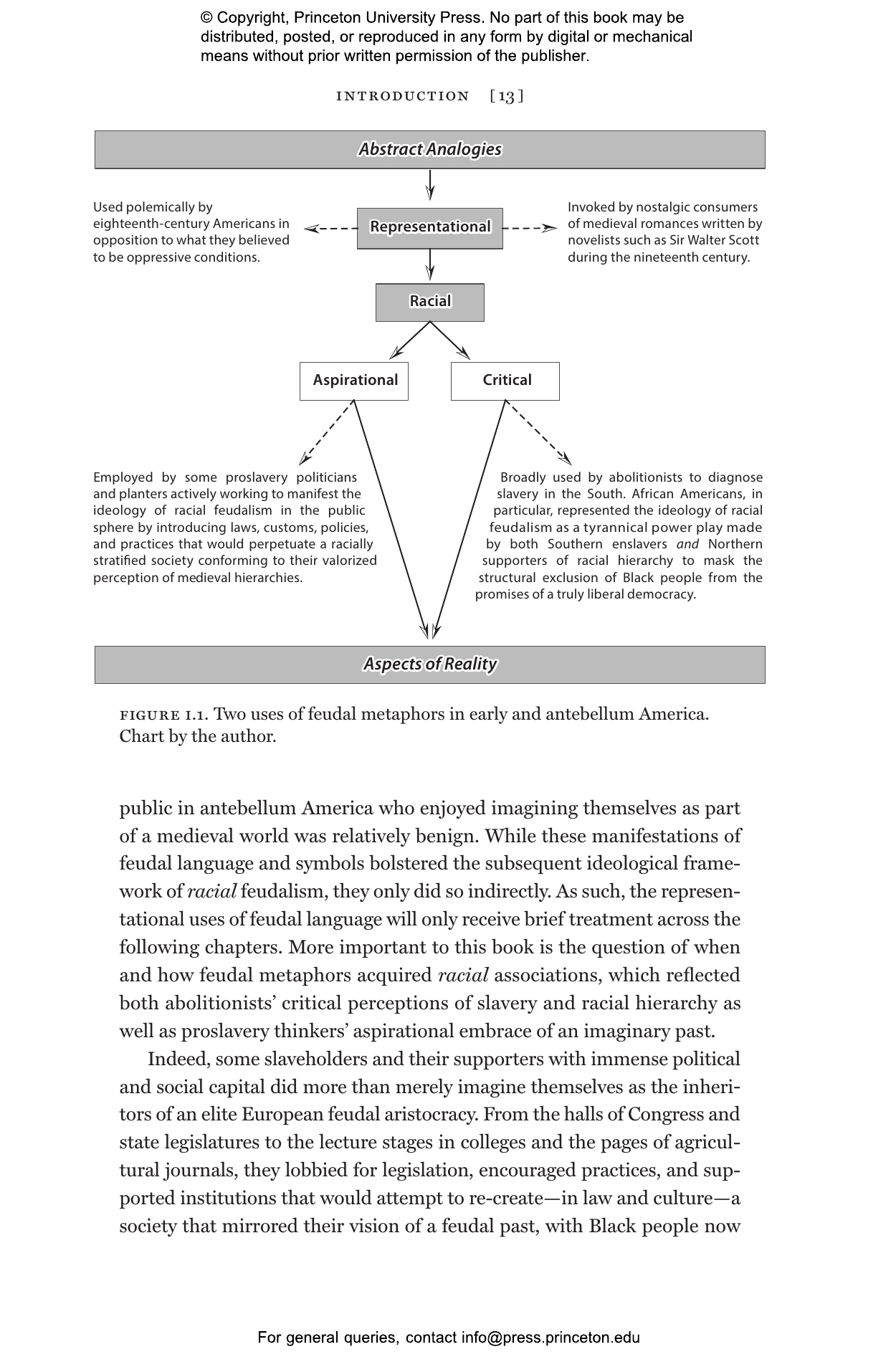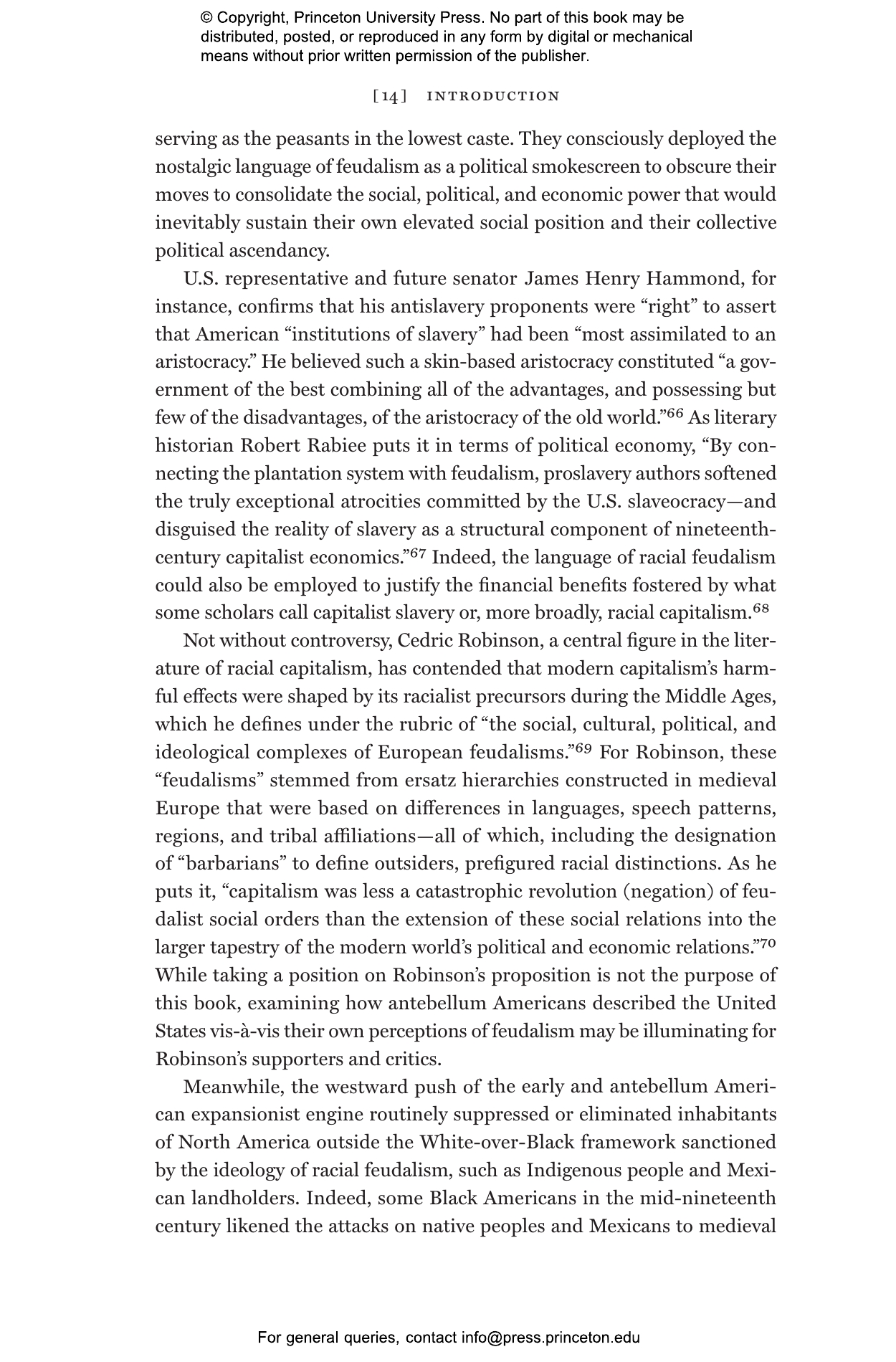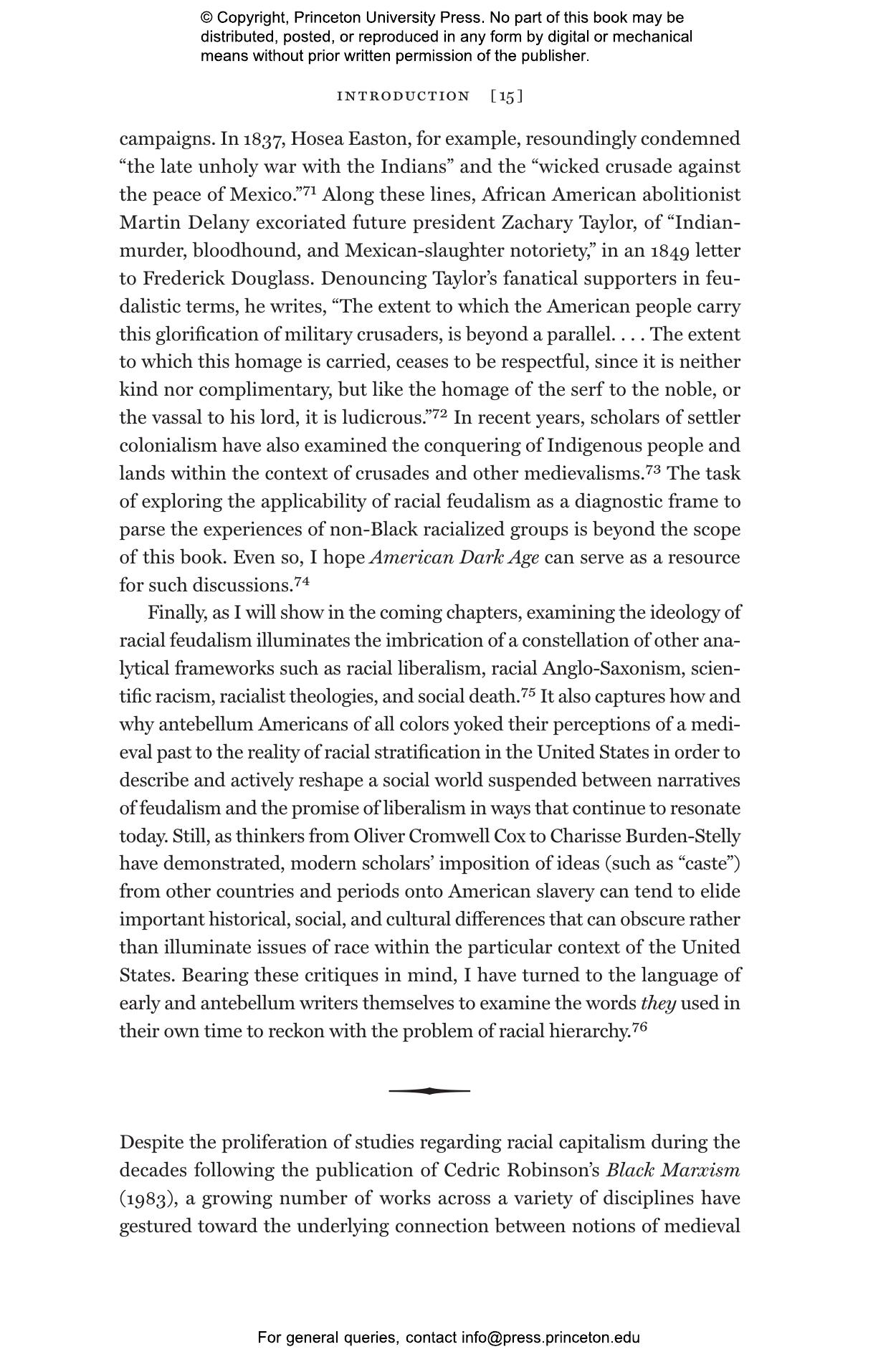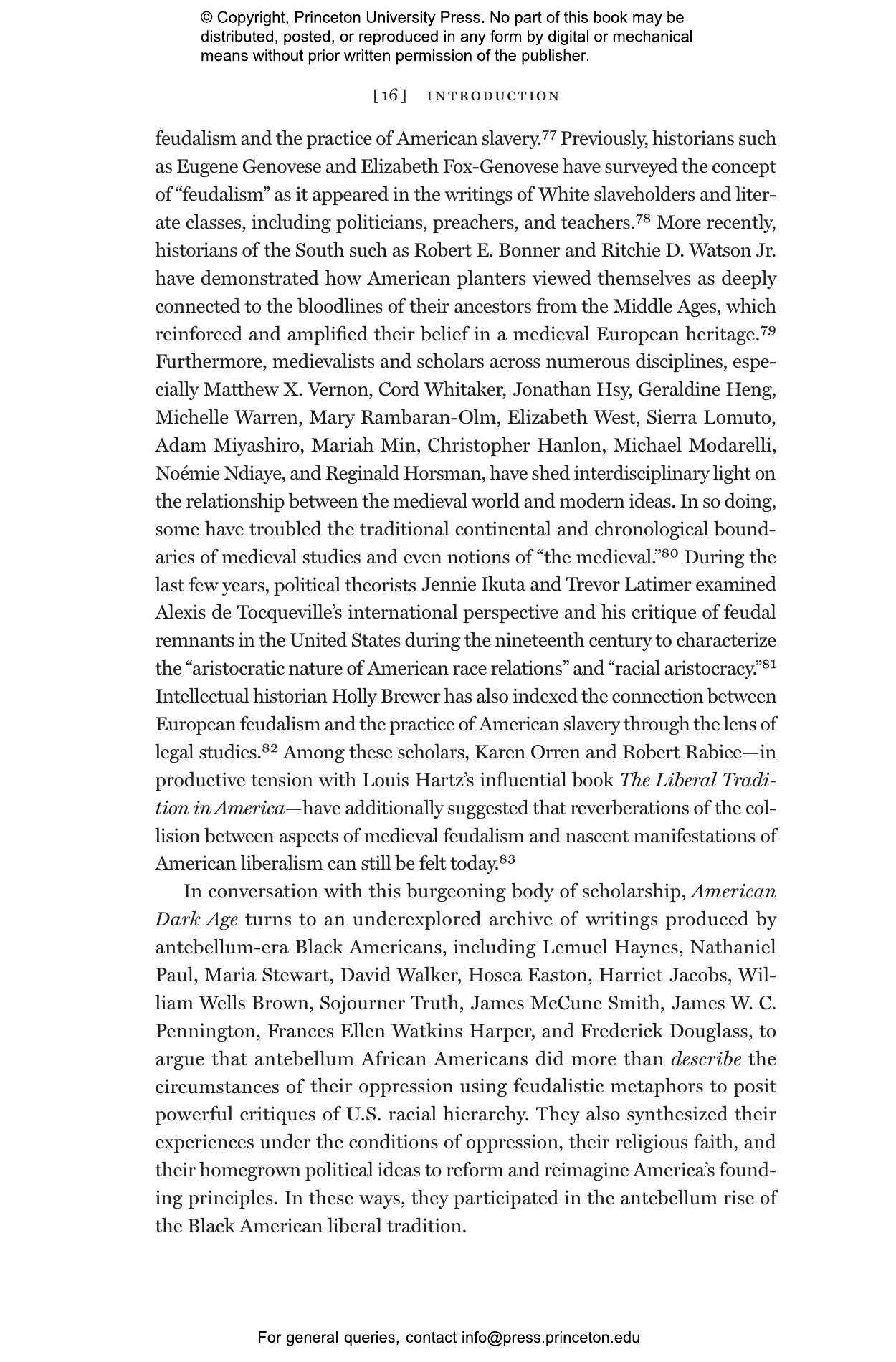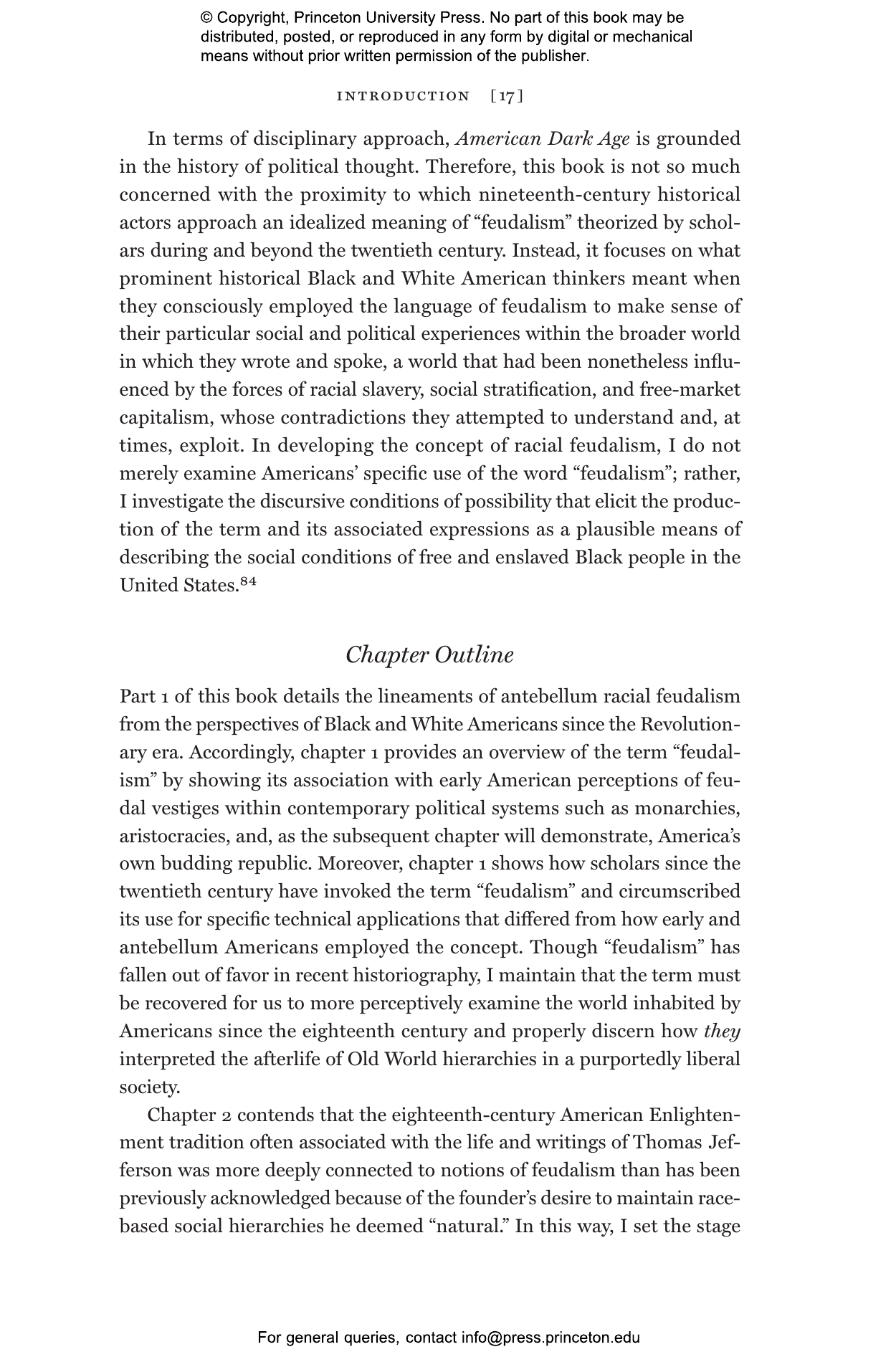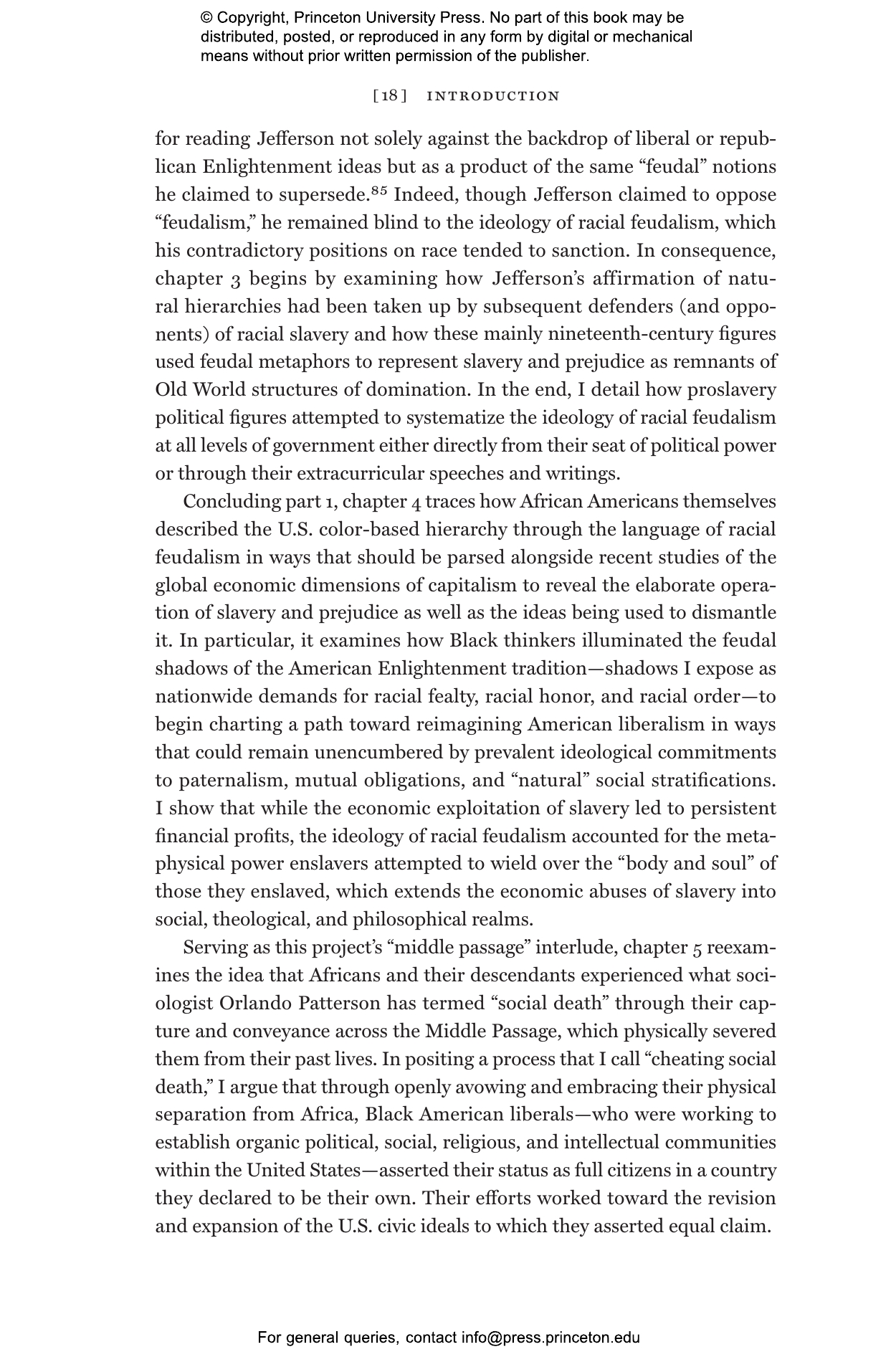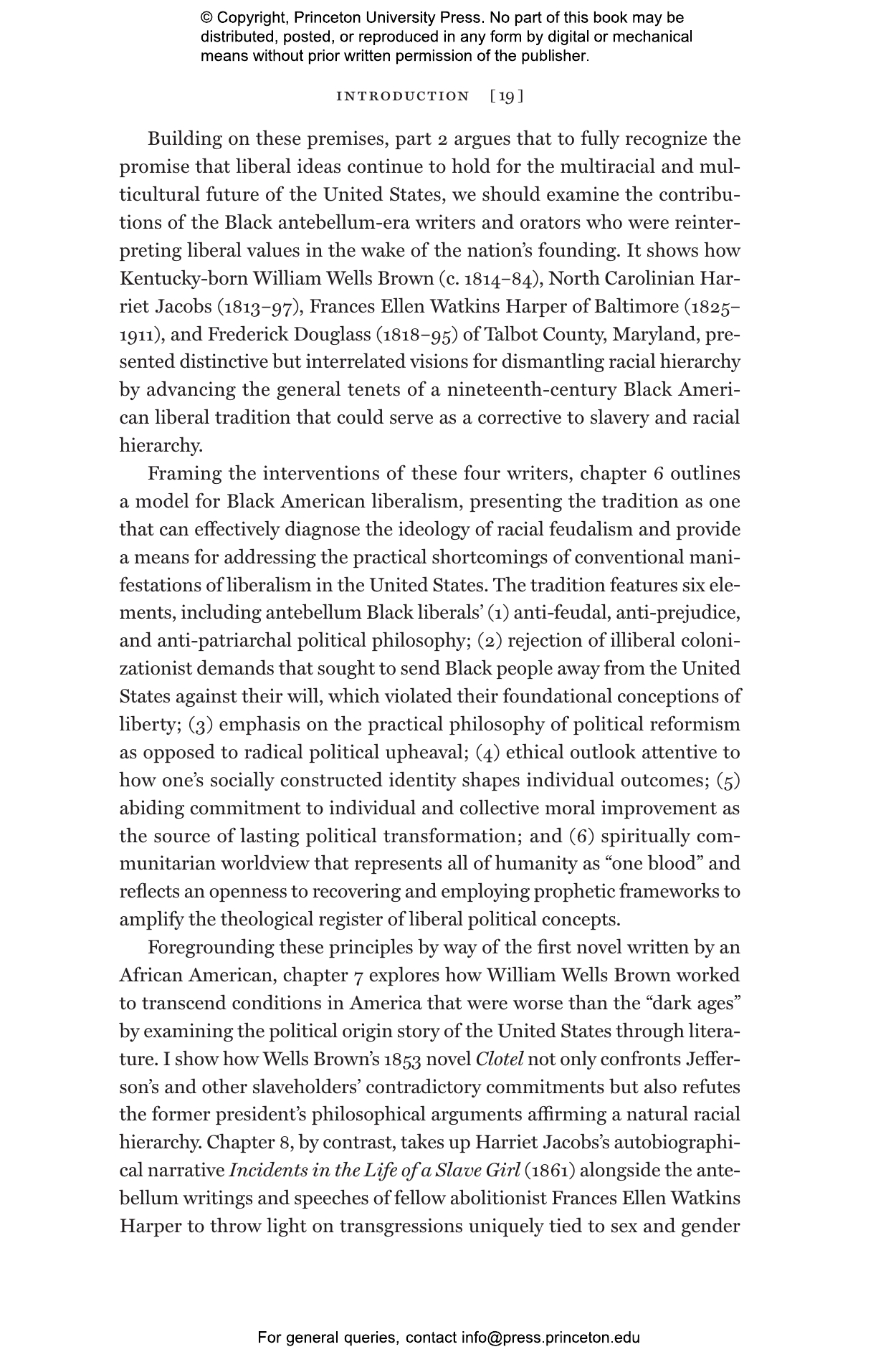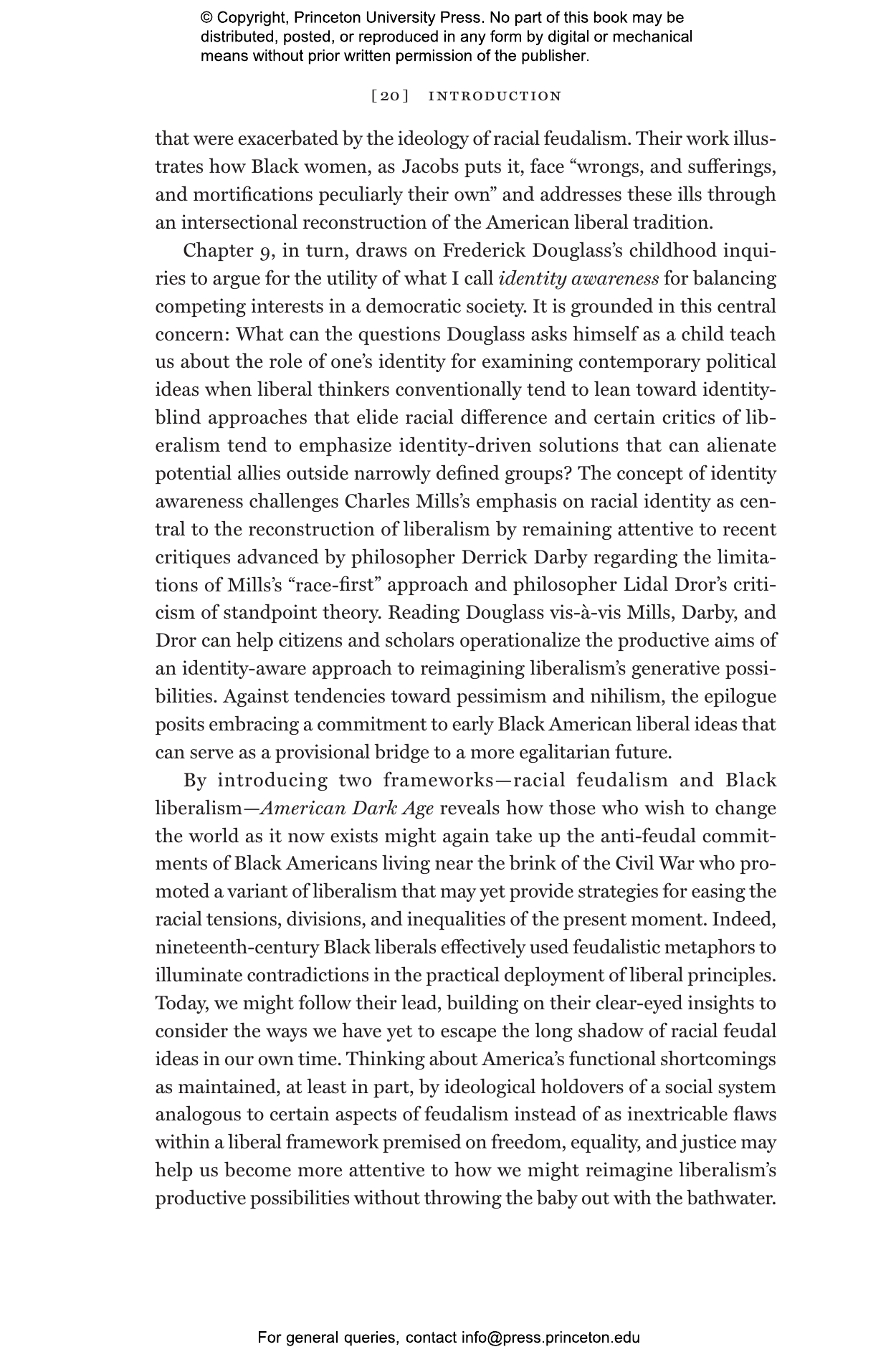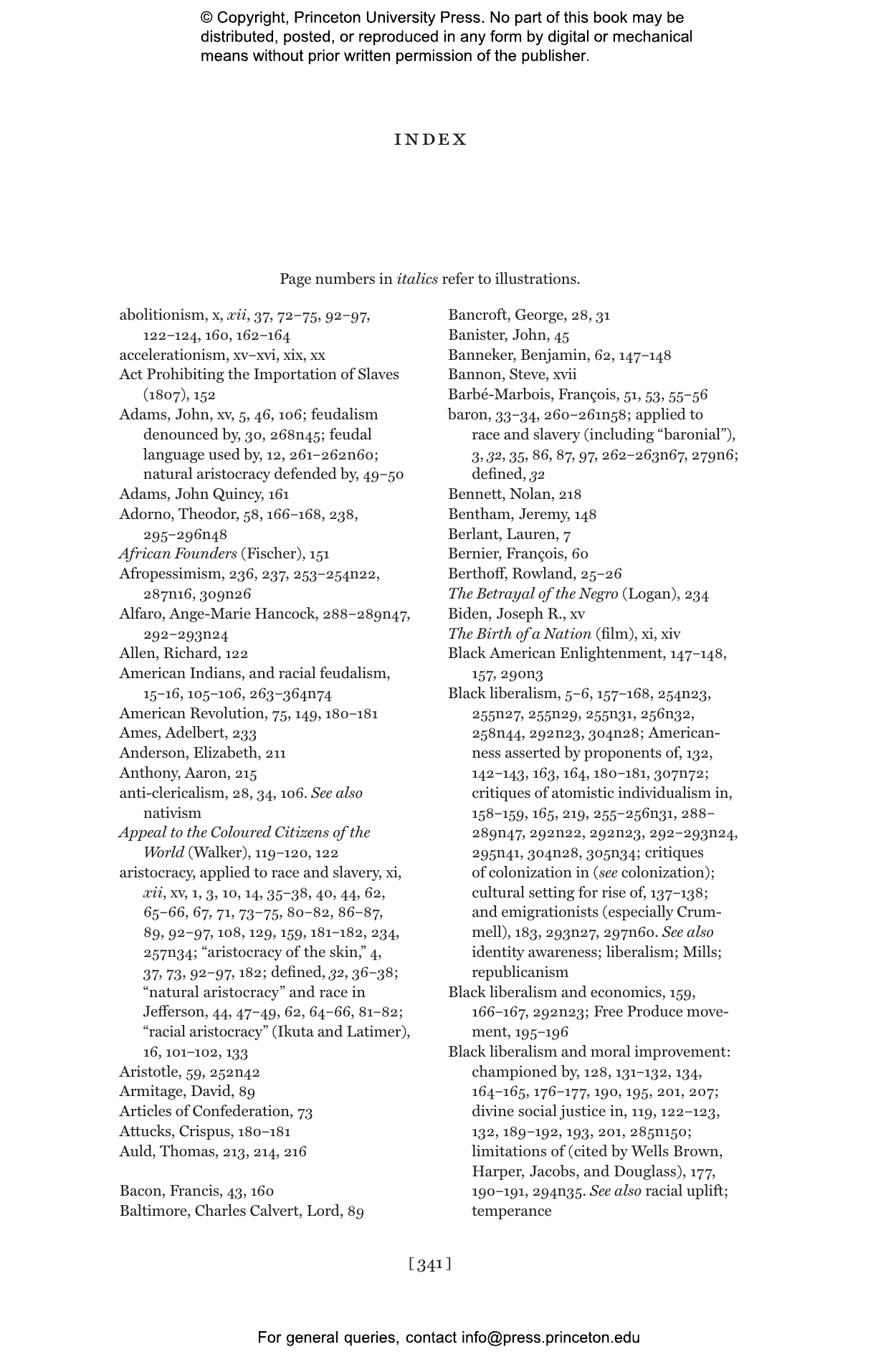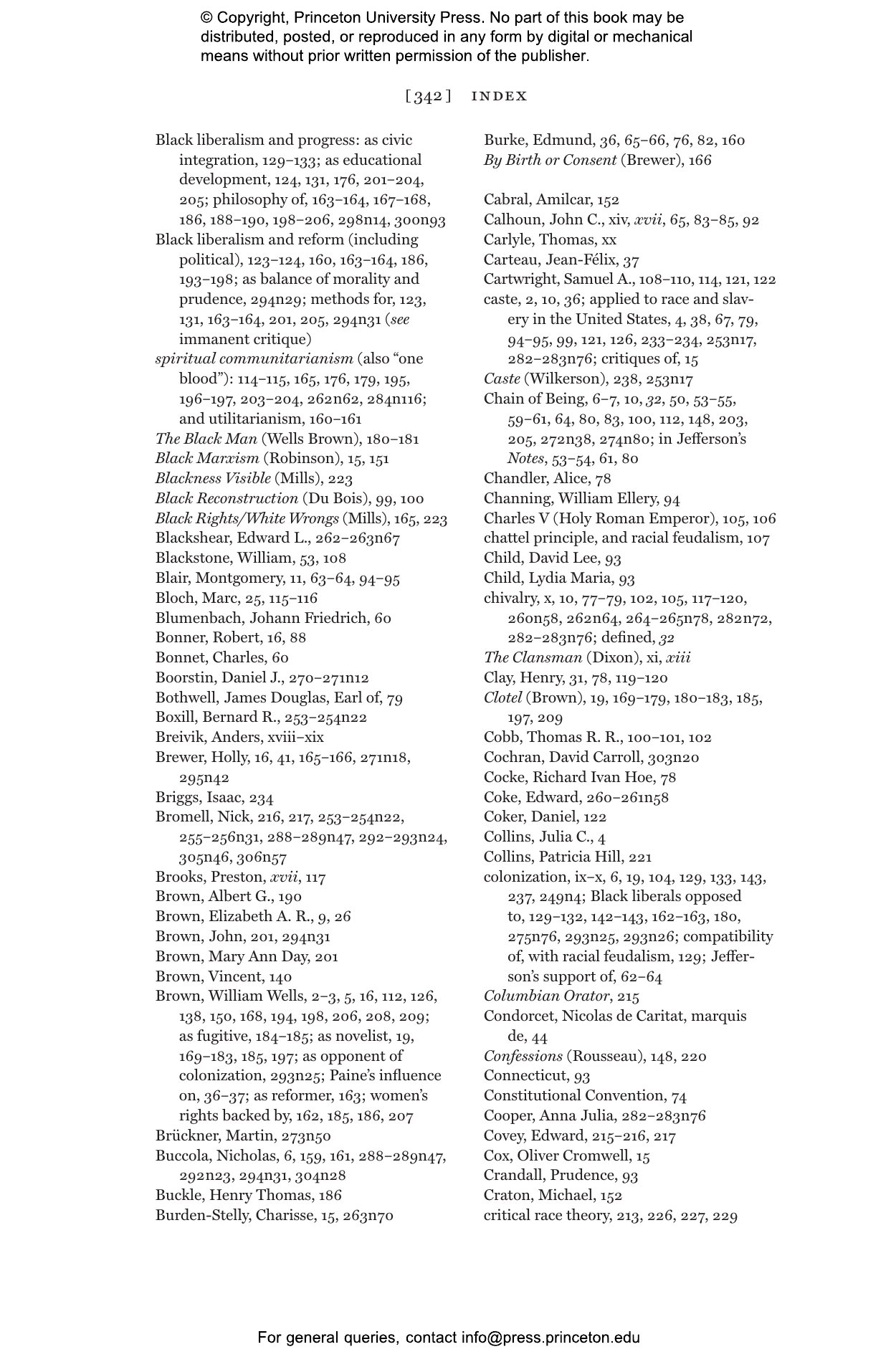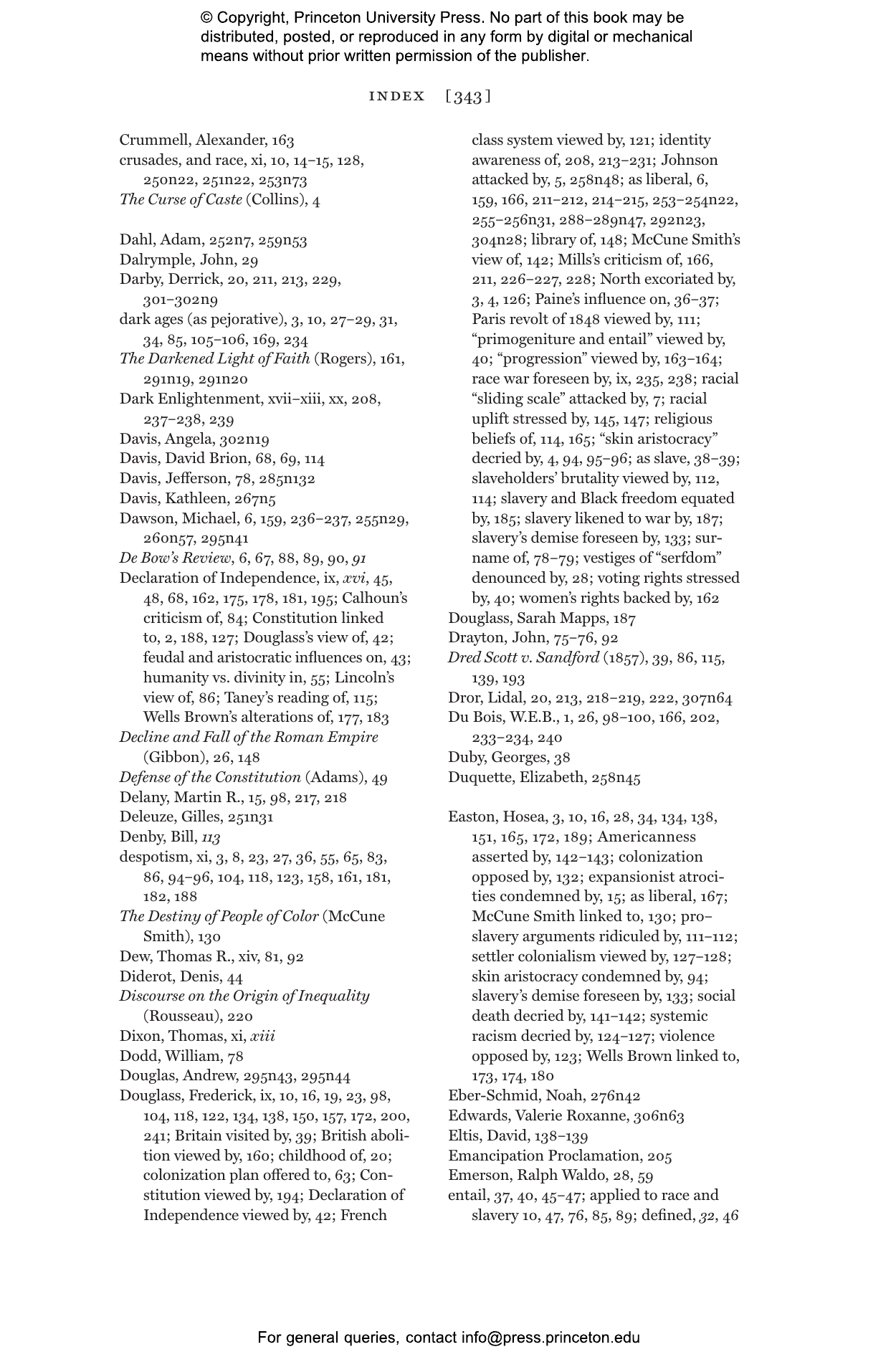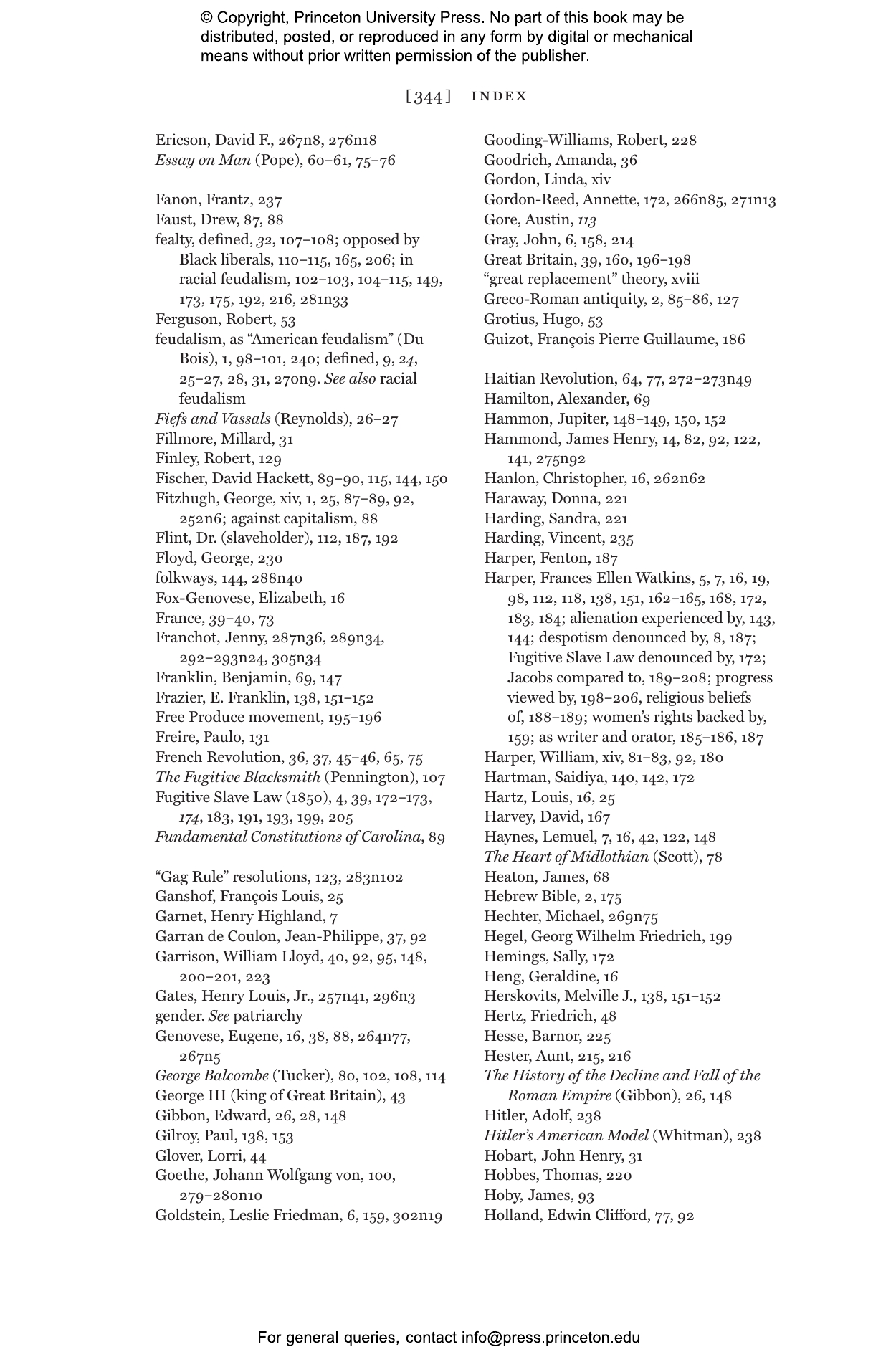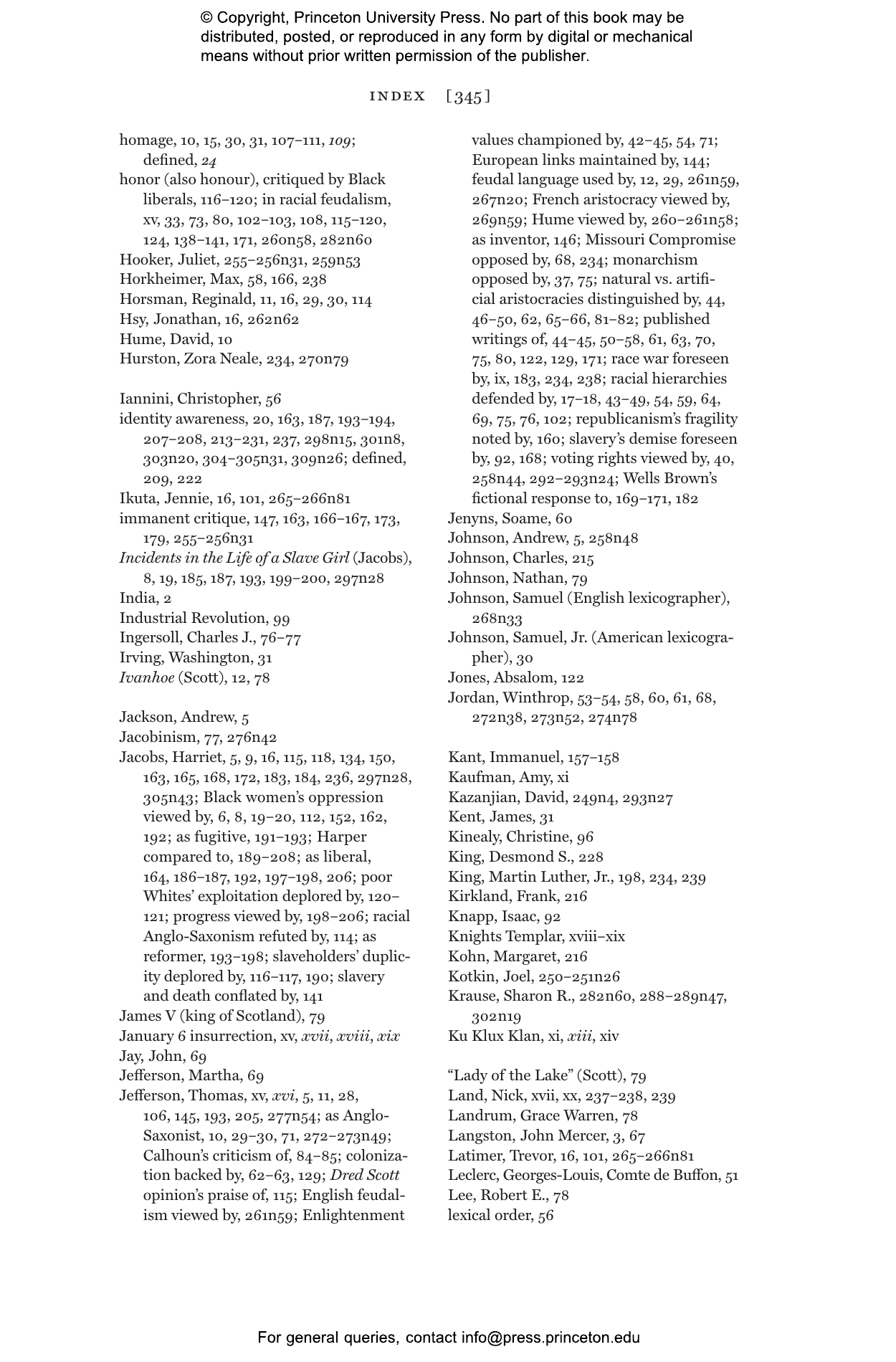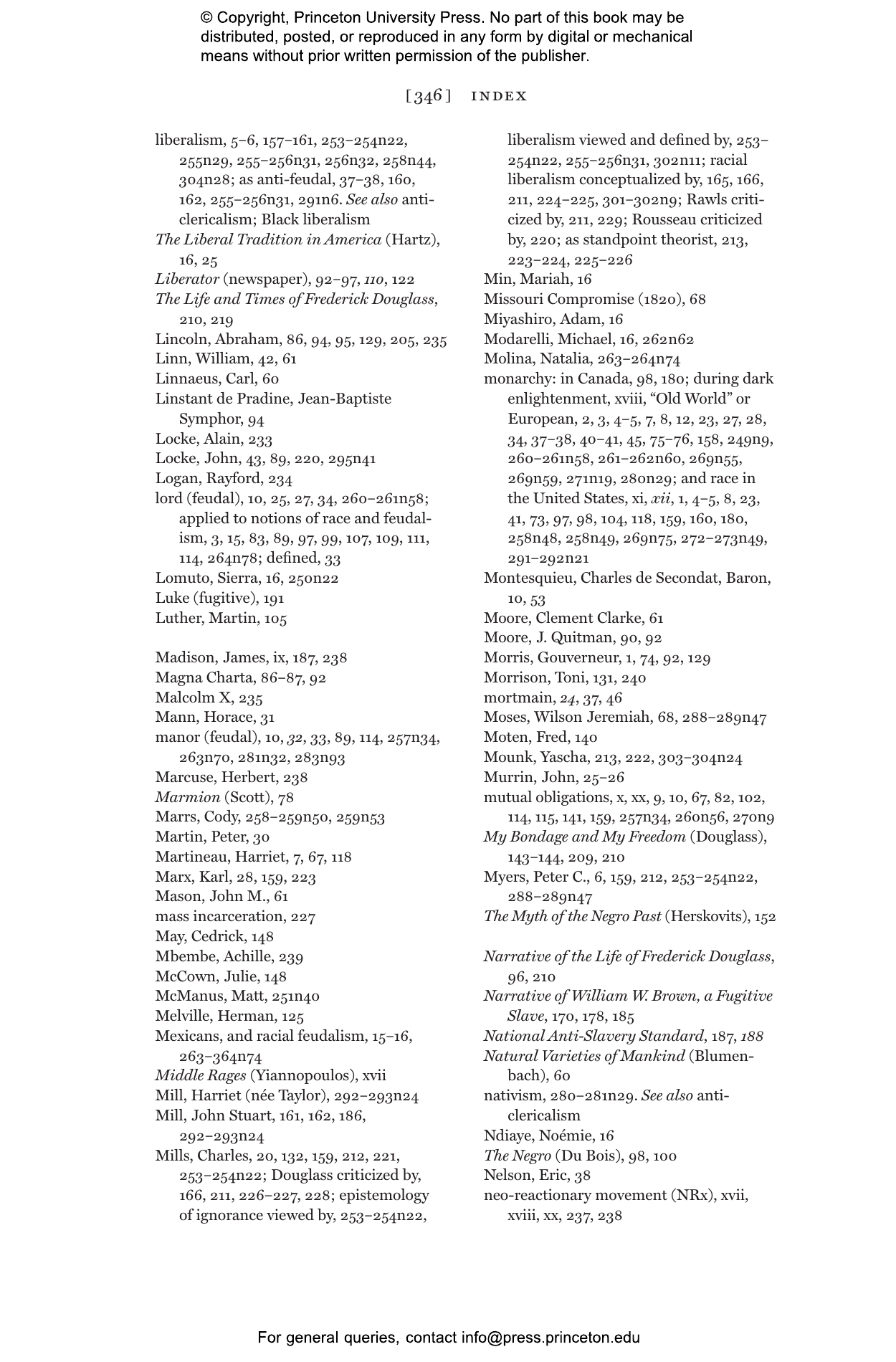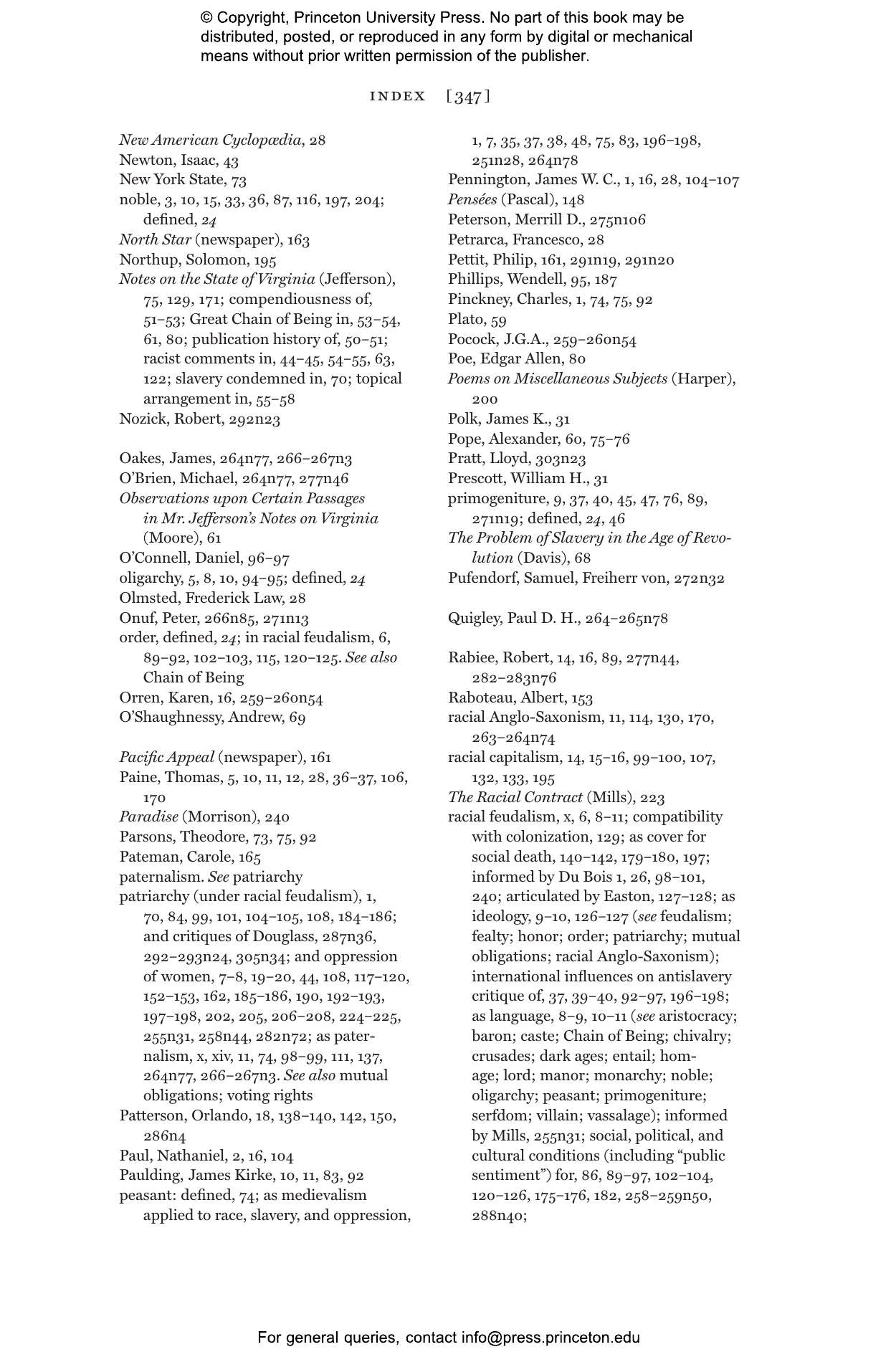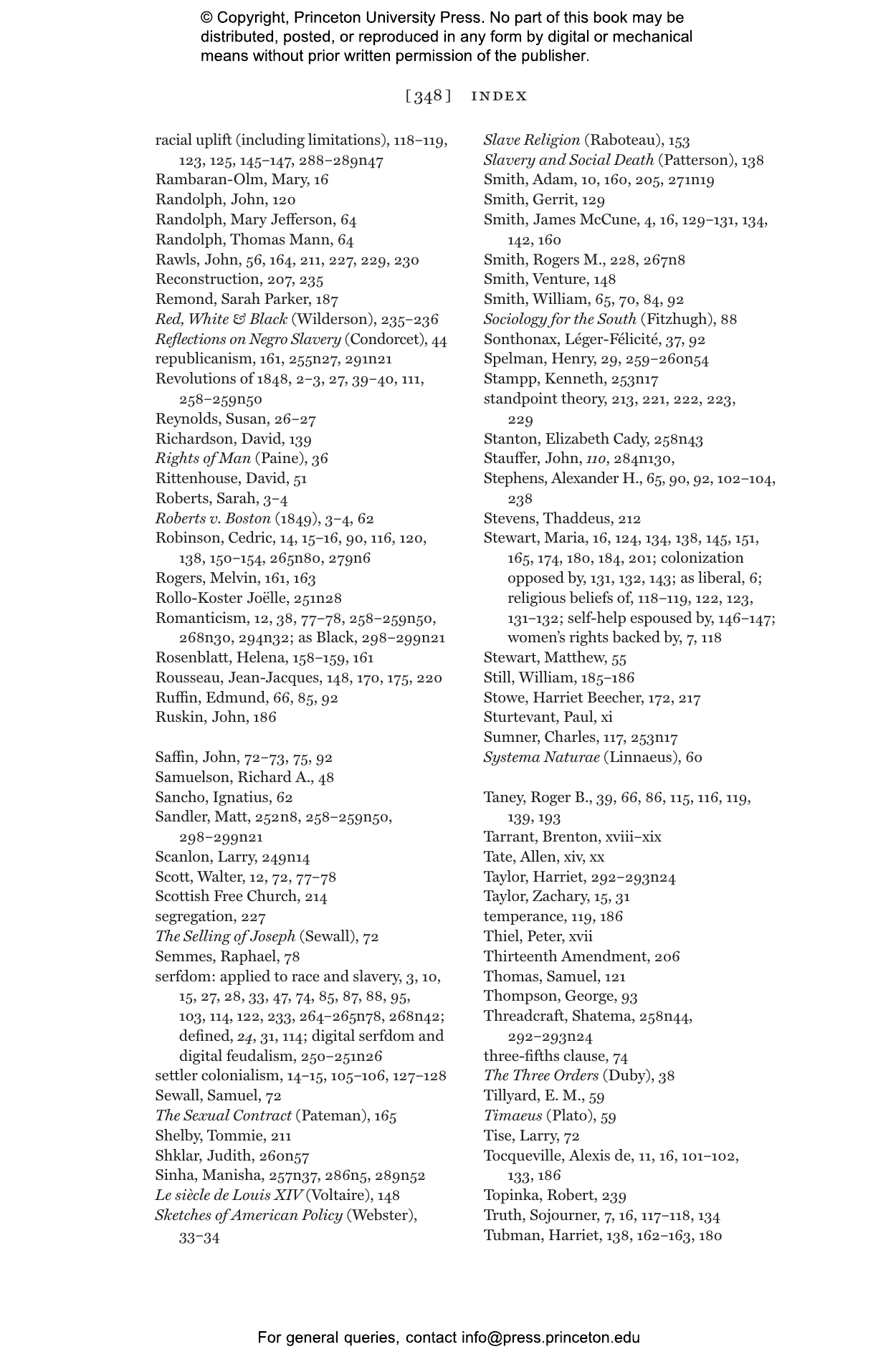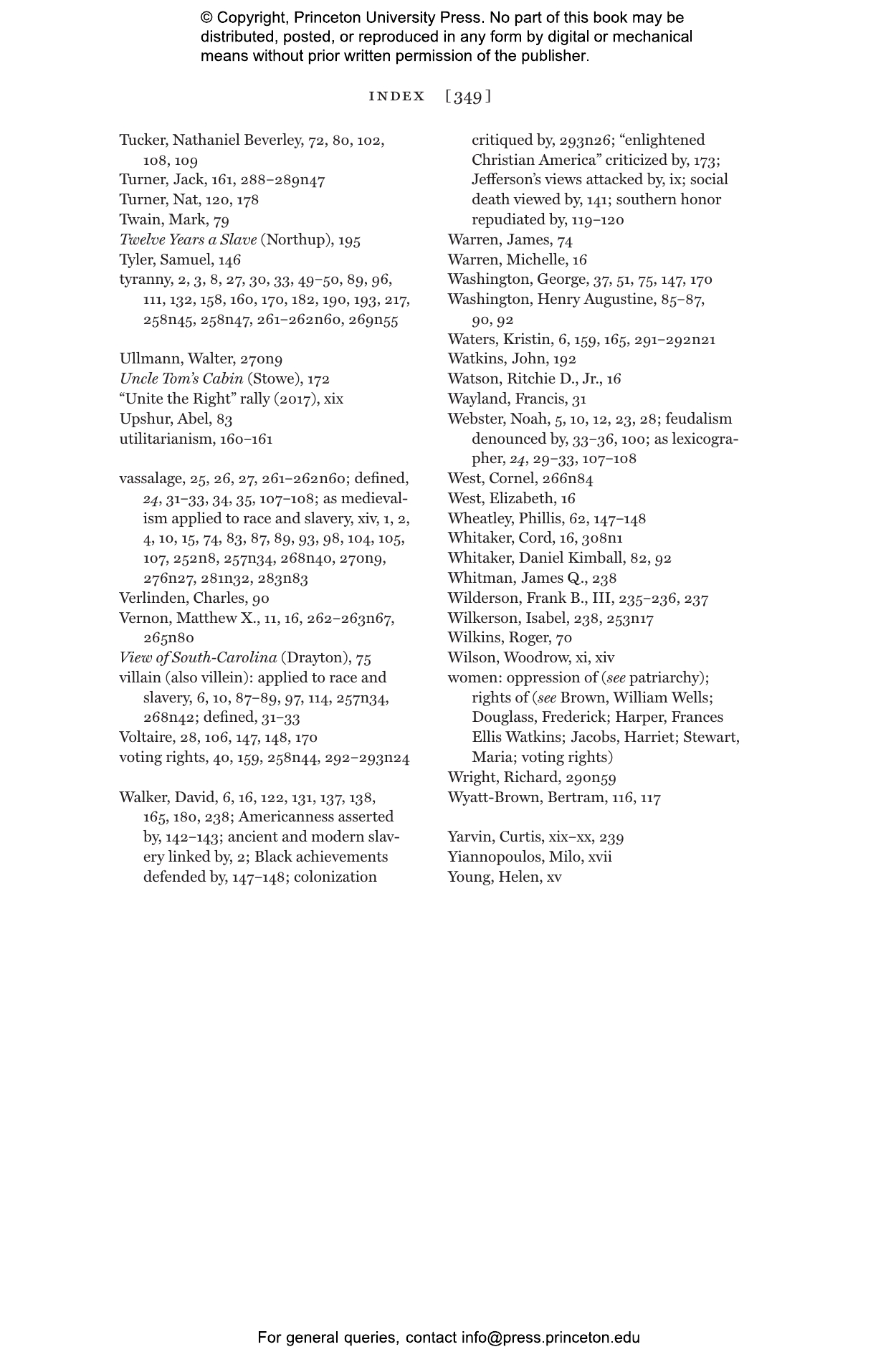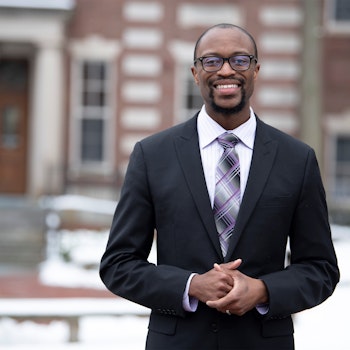Though the United States has been heralded as a beacon of democracy, many nineteenth-century Americans viewed their nation through the prism of the Old World. What they saw was a racially stratified country that reflected not the ideals of a modern republic but rather the remnants of feudalism. American Dark Age reveals how defenders of racial hierarchy embraced America’s resemblance to medieval Europe and tells the stories of the abolitionists who exposed it as a glaring blemish on the national conscience.
Against those seeking to maintain what Frederick Douglass called an “aristocracy of the skin,” Keidrick Roy shows how a group of Black thinkers, including Frances Ellen Watkins Harper, Hosea Easton, and Harriet Jacobs, challenged the medievalism in their midst—and transformed the nation’s founding liberal tradition. He demonstrates how they drew on spiritual insight, Enlightenment thought, and a homegrown political philosophy that gave expression to their experiences at the bottom of the American social order. Roy sheds new light on how Black abolitionist writers and activists worked to eradicate the pernicious ideology of racial feudalism from American liberalism and renew the country’s commitment to values such as individual liberty, social progress, and egalitarianism.
American Dark Age reveals how the antebellum Black liberal tradition holds vital lessons for us today as hate groups continue to align themselves with fantasies of a medieval past and openly call for a return of all-powerful monarchs, aristocrats, and nobles who rule by virtue of their race.
Keidrick Roy is a Junior Fellow at the Harvard Society of Fellows. In 2025, he will be Assistant Professor of Government at Dartmouth College. He has received national attention through media outlets such as CBS News Sunday Morning and the Chicago Review of Books and appears in the HBO documentary Frederick Douglass: In Five Speeches. He has curated two major exhibitions at the American Writers Museum in Chicago on Black American figures, including Frederick Douglass, Ida B. Wells, and Ralph Ellison.
"American Dark Age should become a watershed in our understanding of a crucial cohort of actors in American history, and also in rethinking the liberal political tradition."—Paul Rosenberg, Salon
"Pointing to how feudal imagery is still a mainstay of far-right ideologues . . . Roy makes a persuasive case that studying these antebellum thinkers is critical today. It’s a sophisticated reassessment of America’s political history."—Publishers Weekly (Starred review)
"Black liberalism is too long neglected, and Keidrick Roy’s American Dark Age brings black liberals back onto center stage where they belong."—Paul Crider, Liberal Currents
“American Dark Age is a brilliant and provocative exploration of the ways in which the concept of feudalism shaped the views of nineteenth- and twentieth-century intellectuals, both Black and White, about America’s racial landscape.”—Annette Gordon-Reed, author of On Juneteenth
“In this original work of political theory, Keidrick Roy develops the notion of racial feudalism, which flowered in the slave South and the Confederacy. Roy also shows how African American abolitionists confronted this reactionary medievalism by developing a distinct Black liberal tradition. American Dark Age astutely illuminates the contest that still roils American history and politics today.”—Manisha Sinha, author of The Rise and Fall of the Second American Republic: Reconstruction, 1860–1920
“Keidrick Roy illuminates the racial feudal obsessions of the generations that paradoxically celebrated the Declaration of Independence while ardently championing a slave system that betrayed its most revolutionary ideals. In exposing these medieval fascinations, Roy gives center stage to the Black abolitionists whose resistance ensured that the Civil War wasn’t just fought for the Union but for the values of liberal democracy. American Dark Age is a remarkably fresh and provocative work of scholarship, one worth serious consideration in our more ‘modern times.’”—Henry Louis Gates, Jr., Harvard University
“American Dark Age is a book of both historical and philosophical importance. Roy provides a major intervention with his focused analysis of medieval feudalism in the American context, as well as careful elucidation of the importance of racial feudalism to the thinking of the ‘great democrat’ Thomas Jefferson and nineteenth-century African American thinkers.”—Melvin L. Rogers, author of The Darkened Light of Faith: Race, Democracy, and Freedom in African American Political Thought
